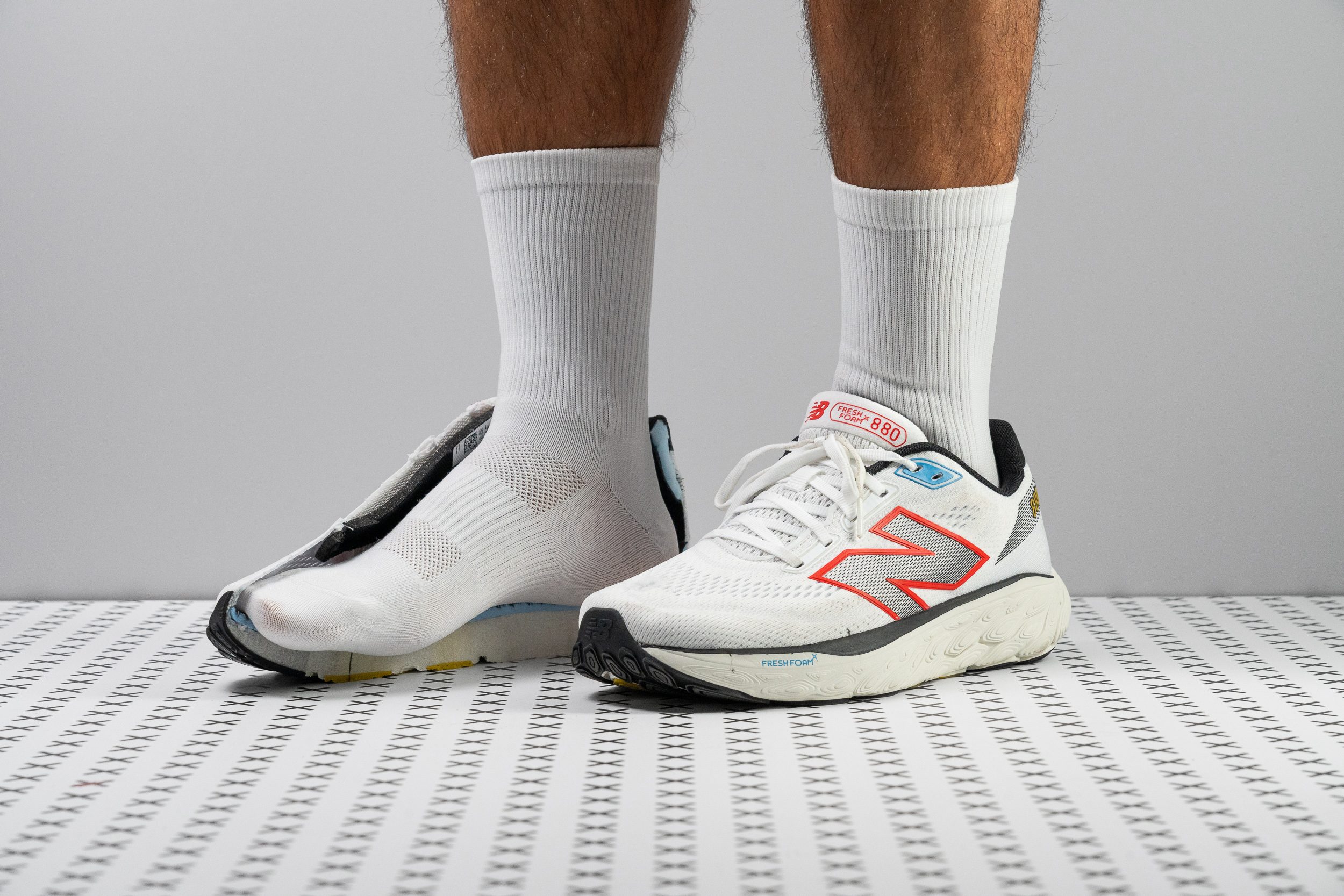Our verdict
Pros
- Great fit with gusseted tongue
- Roomy for wider feet
- Fairly priced
- Soft, comfortable knit
- Lighter than its predecessor
- Plush midsole
- Generous outsole coverage
- Available in up to four widths
Cons
- Limited airflow
- Midsole gets firm in winter
Audience verdict
- Top 21% most popular running shoes
Comparison
The most similar running shoes compared
+ + Add a shoe | |||||
|---|---|---|---|---|---|
| Audience score | 88 Great! | 89 Great! | 79 Good! | 85 Good! | |
| Price | $140 | $85 | $70 | $140 | |
| Pace | Daily running | Daily running | Daily running | Daily running | |
| Shock absorption | Moderate | Low | Moderate | Moderate | |
| Energy return | Moderate | Low | Low | Moderate | |
| Traction | High | Low | Moderate | High | |
| Arch support | Neutral | Neutral | Neutral | Neutral | |
| Weight lab Weight brand | 8.9 oz / 251g 8.7 oz / 247g | 8.5 oz / 241g 9.2 oz / 260g | 9.7 oz / 275g 9.7 oz / 275g | 10.1 oz / 286g 9.9 oz / 281g | |
| Lightweight | ✗ | ✓ | ✗ | ✗ | |
| Drop lab Drop brand | 8.0 mm 8.0 mm | 9.3 mm 10.0 mm | 7.8 mm 8.0 mm | 4.3 mm 6.0 mm | |
| Strike pattern | HeelMid/forefoot | HeelMid/forefoot | Mid/forefoot | Mid/forefoot | |
| Size | Slightly small | True to size | True to size | Slightly small | |
| Midsole softness | Soft | Balanced | Balanced | Soft | |
| Difference in midsole softness in cold | Big | Normal | Small | Small | |
| Toebox durability | Decent | Good | Bad | Decent | |
| Heel padding durability | Bad | Good | Good | Good | |
| Outsole durability | Decent | Decent | Decent | Decent | |
| Breathability | Moderate | Breathable | Moderate | Moderate | |
| Width / fit | Medium | Medium | Medium | Medium | |
| Toebox width | Wide | Medium | Medium | Medium | |
| Stiffness | Moderate | Moderate | Moderate | Stiff | |
| Torsional rigidity | Moderate | Moderate | Moderate | Stiff | |
| Heel counter stiffness | Moderate | Moderate | Stiff | Stiff | |
| Rocker | ✗ | ✗ | ✗ | ✓ | |
| Heel lab Heel brand | 33.0 mm 31.0 mm | 29.7 mm 30.0 mm | 31.2 mm 31.0 mm | 39.7 mm 40.5 mm | |
| Forefoot lab Forefoot brand | 25.0 mm 23.0 mm | 20.4 mm 20.0 mm | 23.4 mm 23.0 mm | 35.4 mm 34.5 mm | |
| Widths available | NarrowNormalWideX-Wide | Normal | NormalWideX-Wide | NarrowNormalWideX-Wide | |
| Orthotic friendly | ✓ | ✓ | ✓ | ✓ | |
| Season | All seasons | SummerAll seasons | All seasons | All seasons | |
| Removable insole | ✓ | ✓ | ✓ | ✓ | |
| Ranking | #283 Top 42% | #114 Top 30% | #335 Bottom 12% | #211 Bottom 45% | |
| Popularity | #139 Top 21% | #126 Top 33% | #70 Top 19% | #39 Top 11% |
Who should buy
We're convinced the New Balance Fresh Foam X 880 v14 is a top pick for:
- Runners looking for a dependable daily trainer with a soft midsole for added comfort on every run.
- Those wanting a neutral shoe with a spacious knit upper but can handle a slightly lower toebox.
- Individuals eyeing the 1080 series but seeking a more affordable option with just a touch less cushioning.
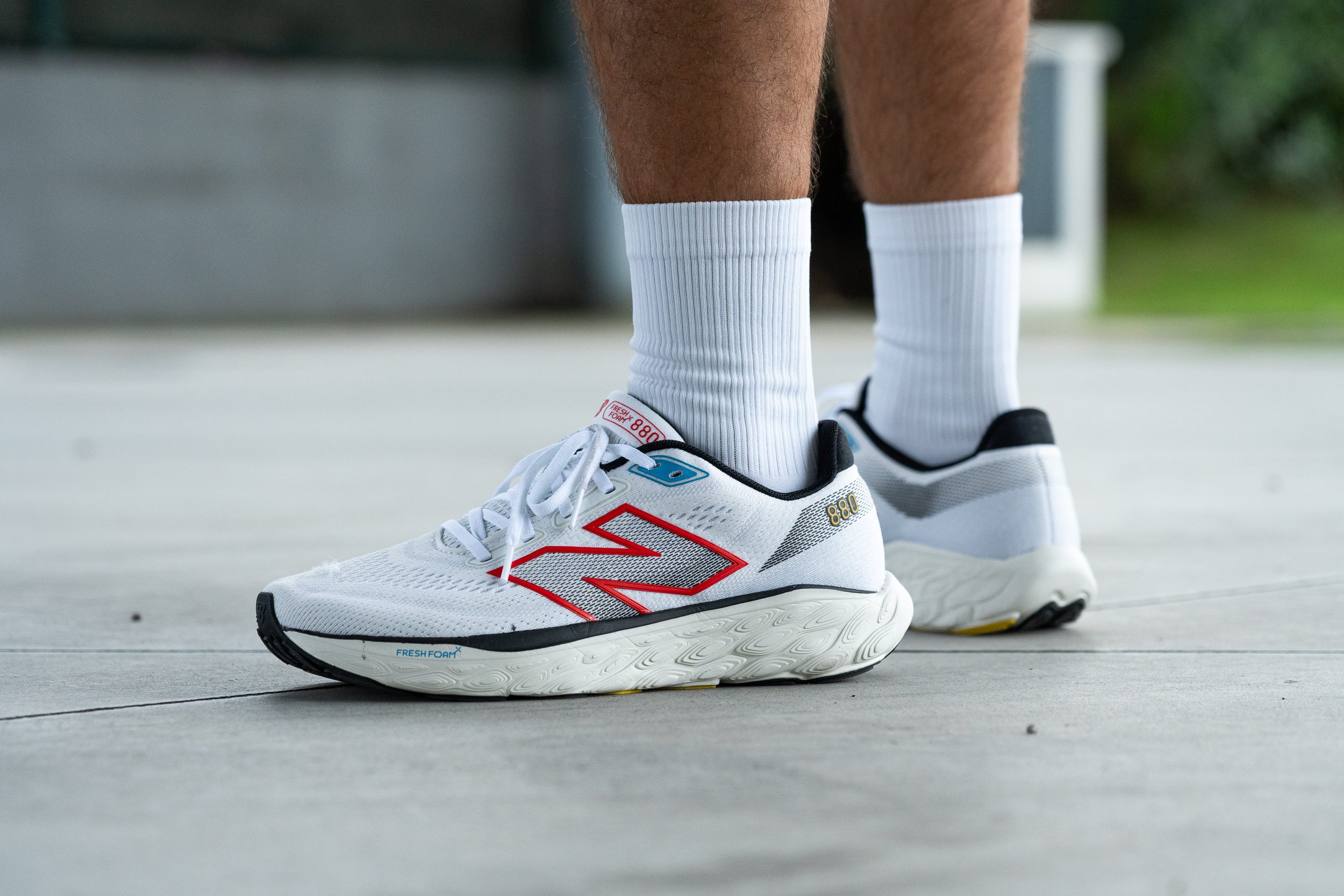
Who should NOT buy
While the 880 v14 offers solid value, we believe runners seeking a more cushioned and premium experience should opt for the New Balance Fresh Foam X 1080 v13. It enhances many features of the 880, including a softer, more plush ride, though it comes with a slightly lower drop that may not appeal heel strikers. If that's a concern, we recommend considering the ASICS Nimbus 26 instead for a more balanced option.
In our view, heavier runners might find the cushioning of the 880 v14 lacking underfoot. If you're worried about that, we suggest looking at the ASICS Novablast 4, which is similarly priced but delivers much more foam and an ultra-cushioned feel.
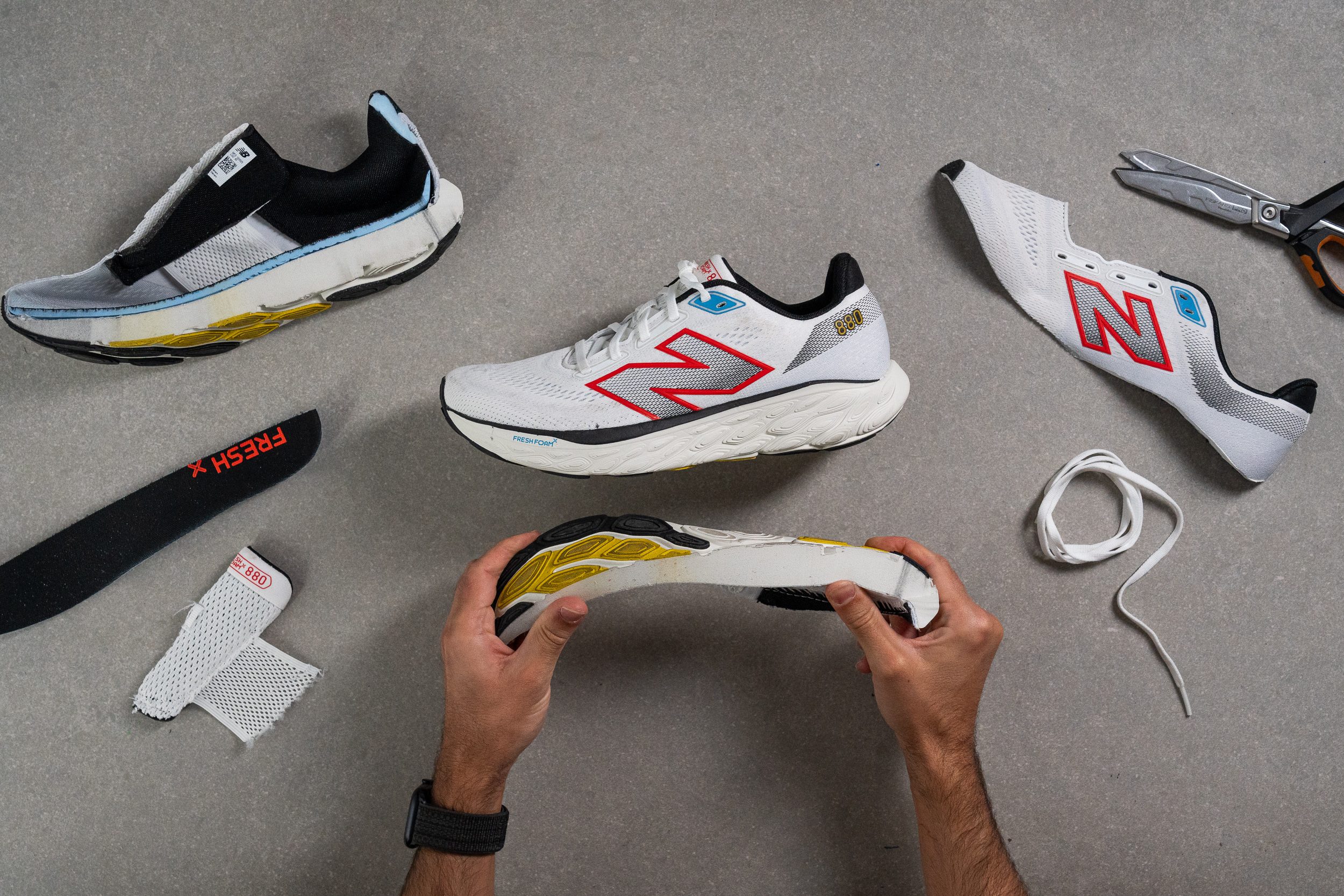
Cushioning
Shock absorption
We found moderate shock absorption with 121 SA in the heel and 99 SA in the forefoot. But why not higher scores?
Well, it's simple—New Balance needs to keep lineup consistency, and the 880 isn’t meant to step into 1080 territory.
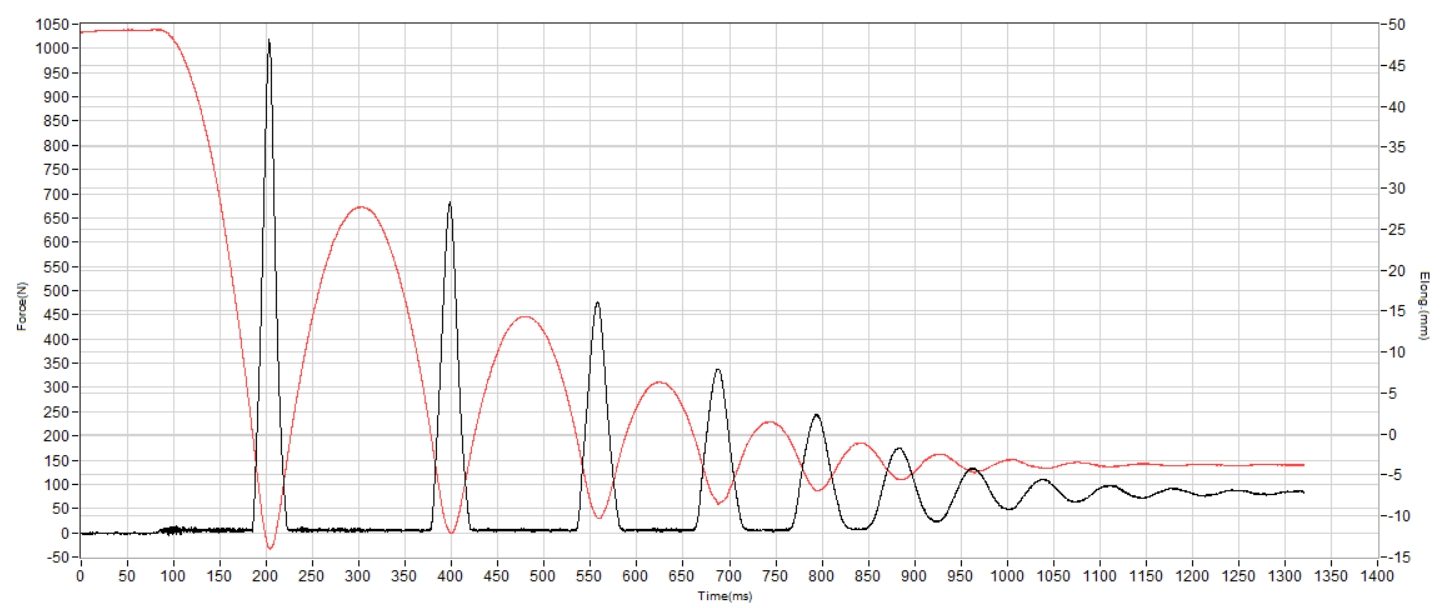
| Fresh Foam X 880 v14 | 121 SA |
| Average | 130 SA |
Energy return
Energy return isn’t the standout feature of the 880 v14, which leans more toward comfort at easy paces. Still, 57.9% in the heel and 62.7% in the forefoot are solid numbers for a daily trainer, especially for midfoot or forefoot strikers.
| Fresh Foam X 880 v14 | 57.9% |
| Average | 58.6% |
Heel stack
This shoe is crafted as a daily trainer, aiming to be as versatile as possible, making it suitable for most runners. We measured a 33.0-mm stack height in the heel, reflecting that average approach—providing solid cushioning without entering the maximalist category.
We believe this stack height offers good protection for heel strikers seeking a reliable mid-distance option. And while it's not designed for extreme cushioning, we think it's a good long-run option for lightweight runners.
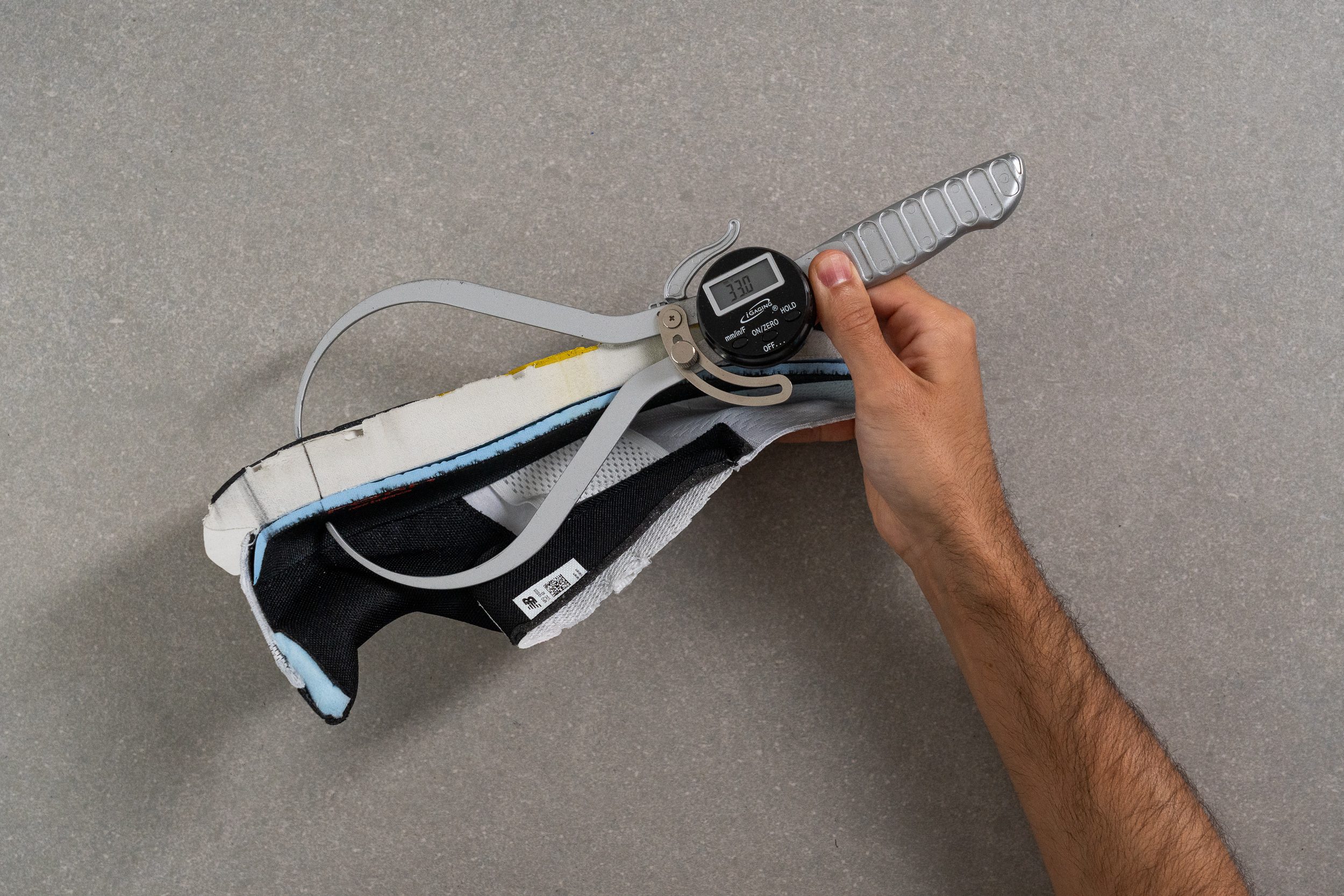
| Fresh Foam X 880 v14 | 33.0 mm |
| Average | 34.8 mm |
Forefoot stack
The forefoot mirrors the design of the heel—again, "average" is the word that defines it. We measured 25.0 mm in this area, offering a decent amount of cushioning underfoot, but you'll still feel the ground. And that’s probably something you’ll want for your daily runs.
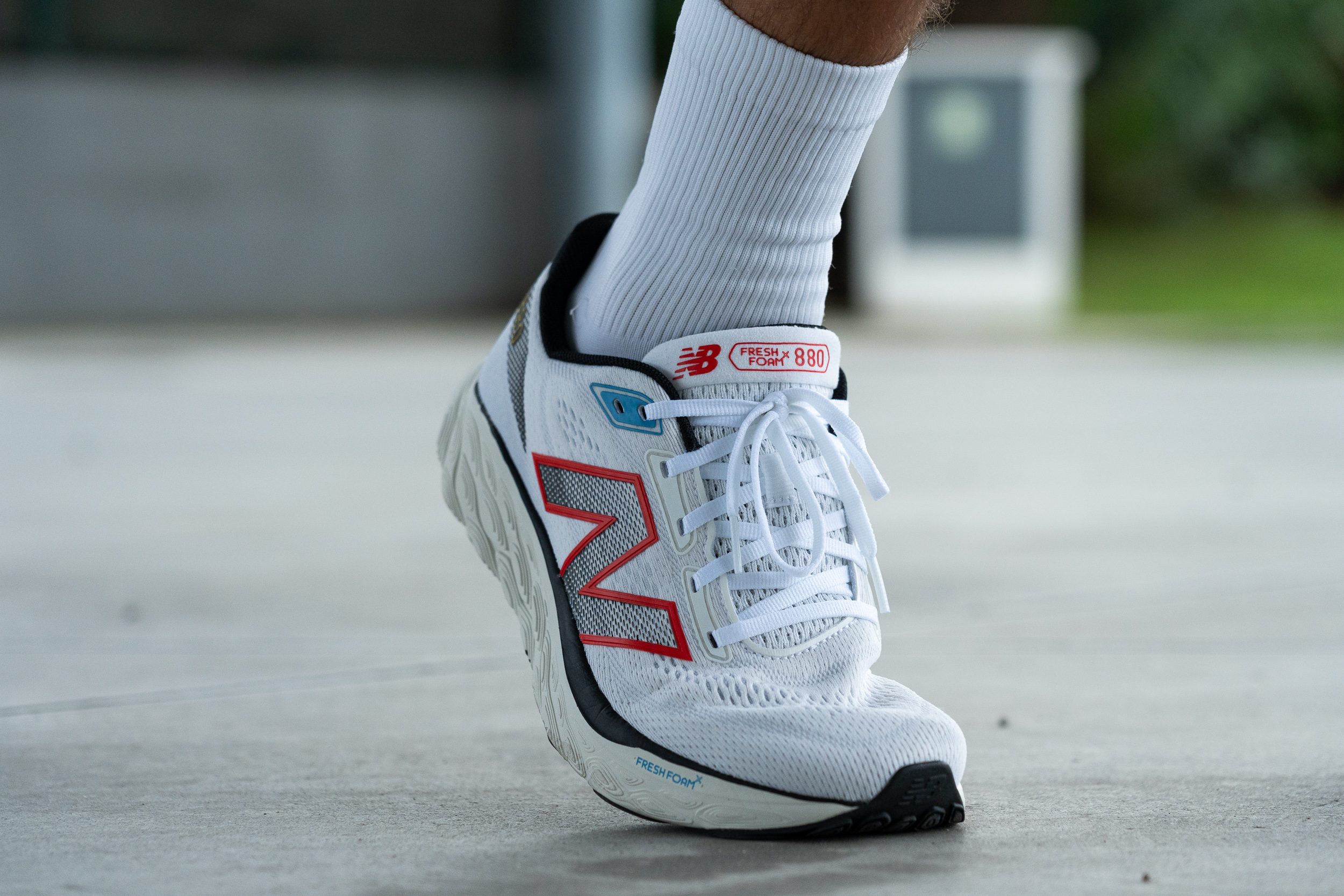
In our experience, this setup works well for those who like ground feedback, but if you're seeking more protection and less road feel, a maximalist option like the Puma MagMax Nitro might suit you better.
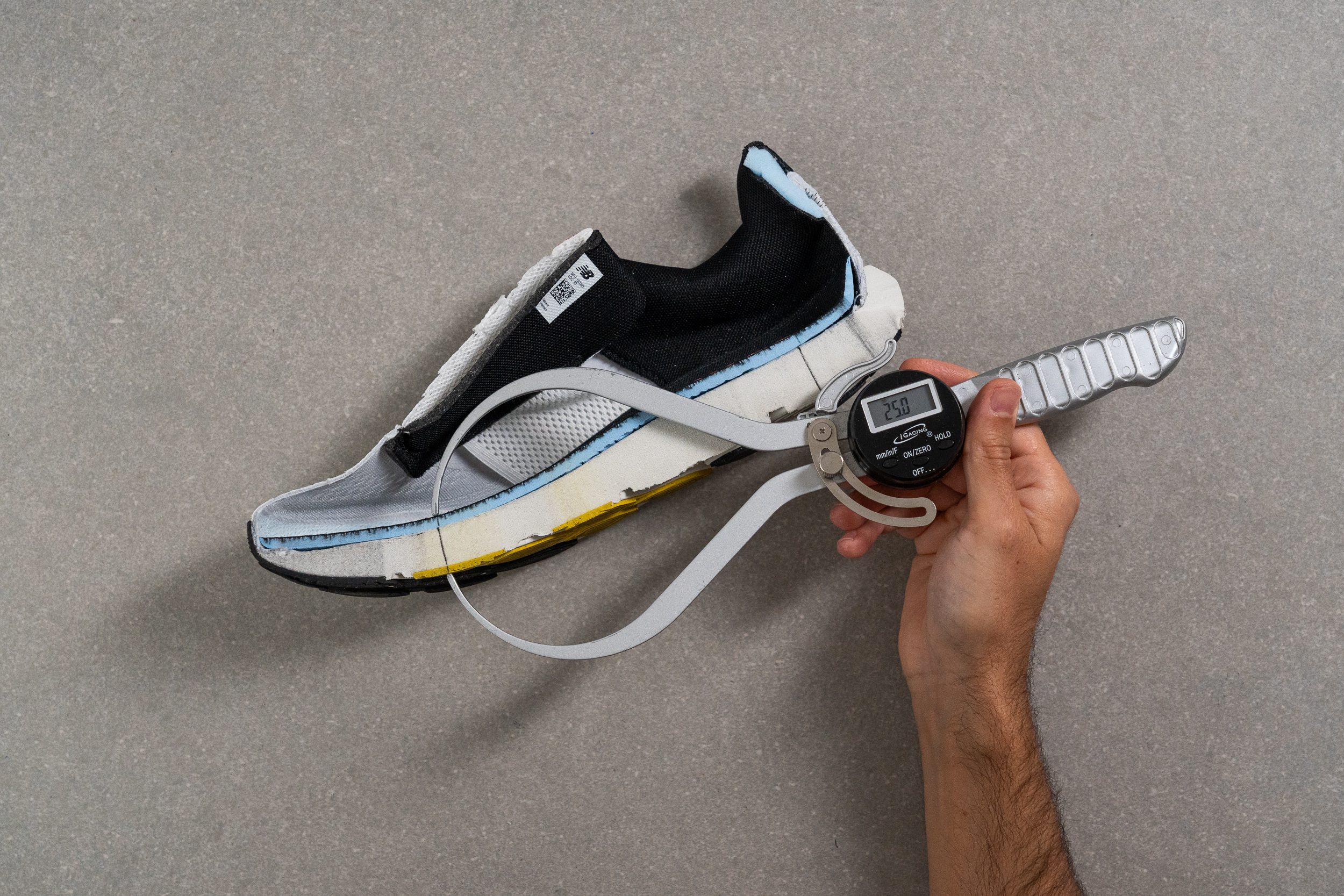
| Fresh Foam X 880 v14 | 25.0 mm |
| Average | 26.2 mm |
Drop
If you're good with numbers, you might have already guessed that the New Balance Fresh Foam X 880 v14 is one of the rare shoes where the brand-stated heel-to-toe drop exactly matched our lab measurements.
We measured the drop at 8.0 mm, which is the standard choice for daily trainers. Some brands go for 10 mm, but in our experience, such difference isn't noticeable during runs. It's still a high-drop design.
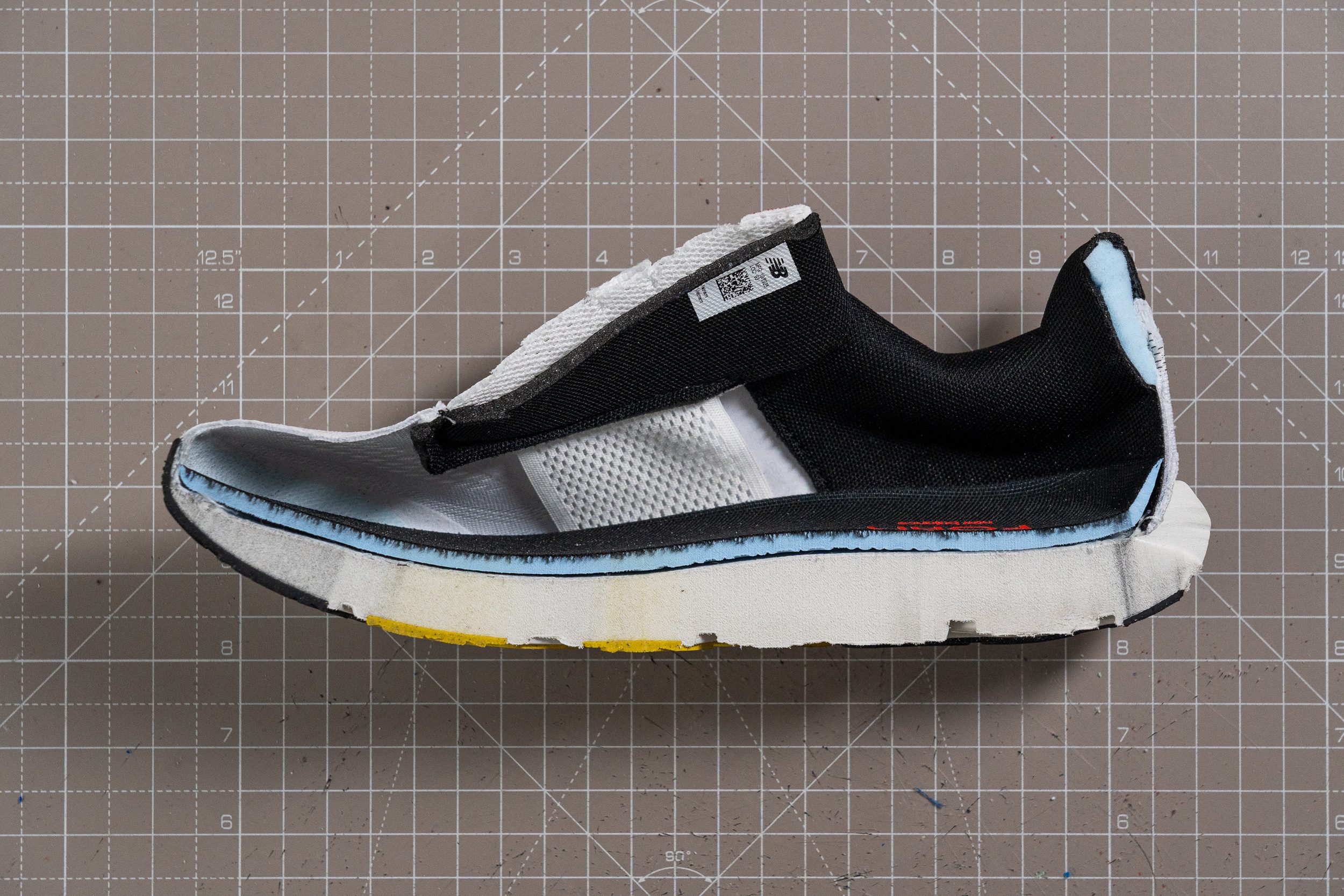
| Fresh Foam X 880 v14 | 8.0 mm |
| Average | 8.6 mm |
Midsole softness
New Balance introduced their Fresh Foam X compound targeting runners who prefer softness and aiming to fill that gap in the market. In our view—they’ve succeeded in becoming the go-to brand for plush daily trainers.
But softness doesn't always mean better—it’s all about preference. Nonetheless, for those who seek a cushioned feel, the Fresh Foam X 880 v14 delivers a noticeably softer ride than most competitors. We confirmed this with our durometer reading of 15.6 HA.
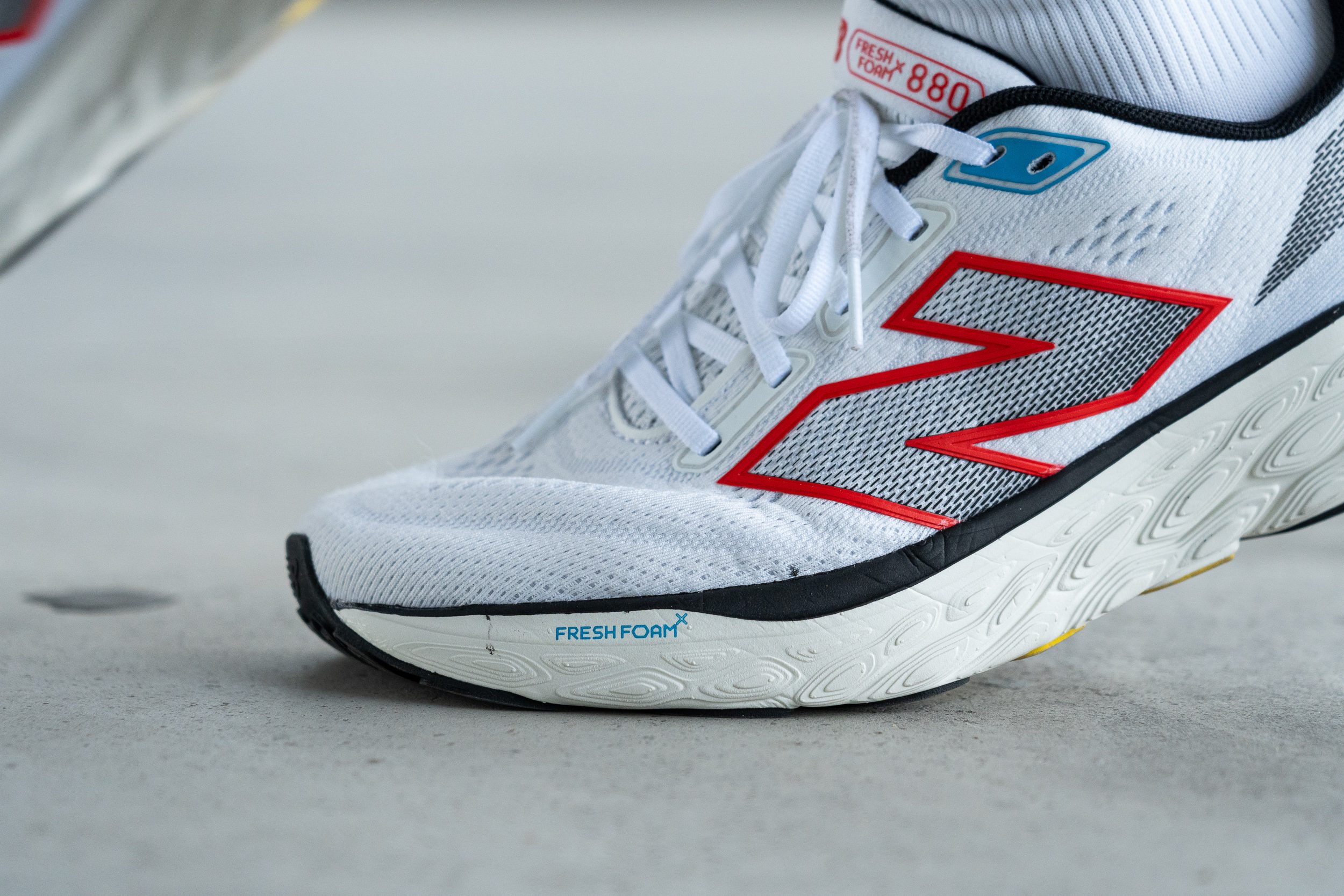
However, energy return tells a different story. Since Fresh Foam X is EVA-based, we found that its resilience is limited. While it offers comfort, don’t expect the bounce-back you’d find in more responsive foams.
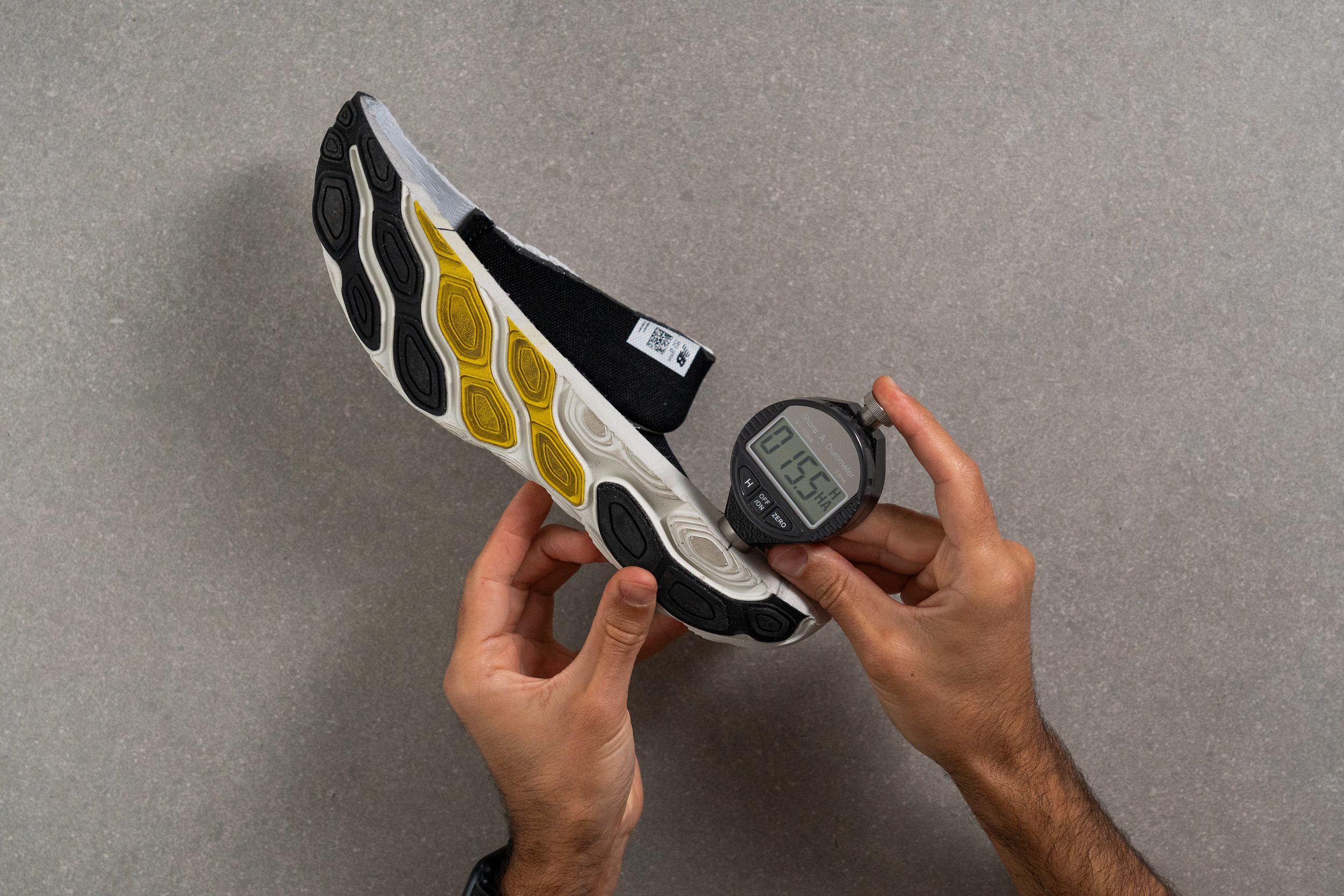
| Fresh Foam X 880 v14 | 15.6 HA |
| Average | 20.4 HA |
Rocker
We found that New Balance chose a non-rockered design for the 880 v14, which fits well with the shoe’s flexible feel and average stack height.
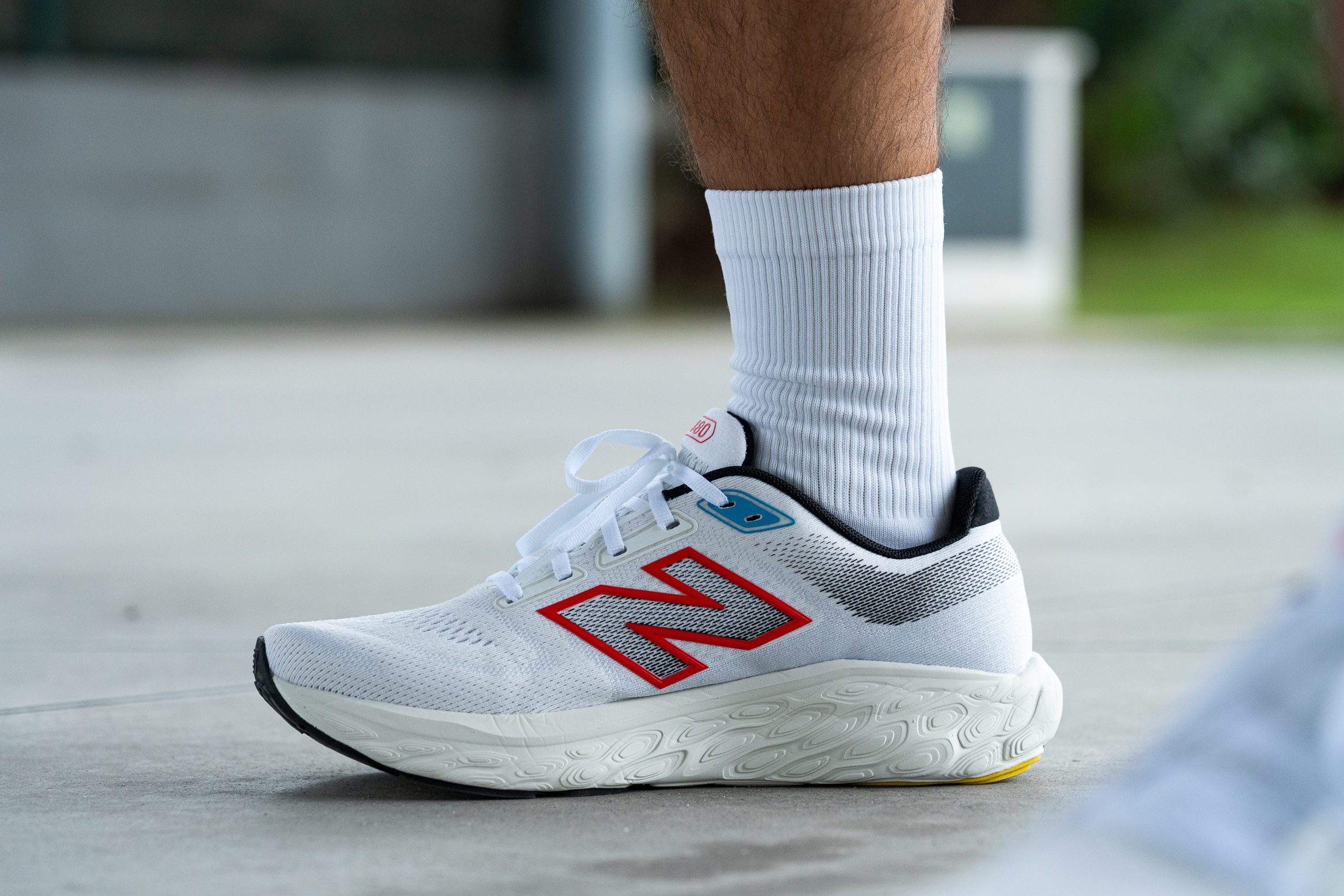
In our experience, non-rockered designs like this one encourages your foot muscles to engage more, gradually strengthening them over time, and this is beneficial for every runner. Therefore, we believe it's a great idea to have multiple shoes with varied geometries in your rotation.
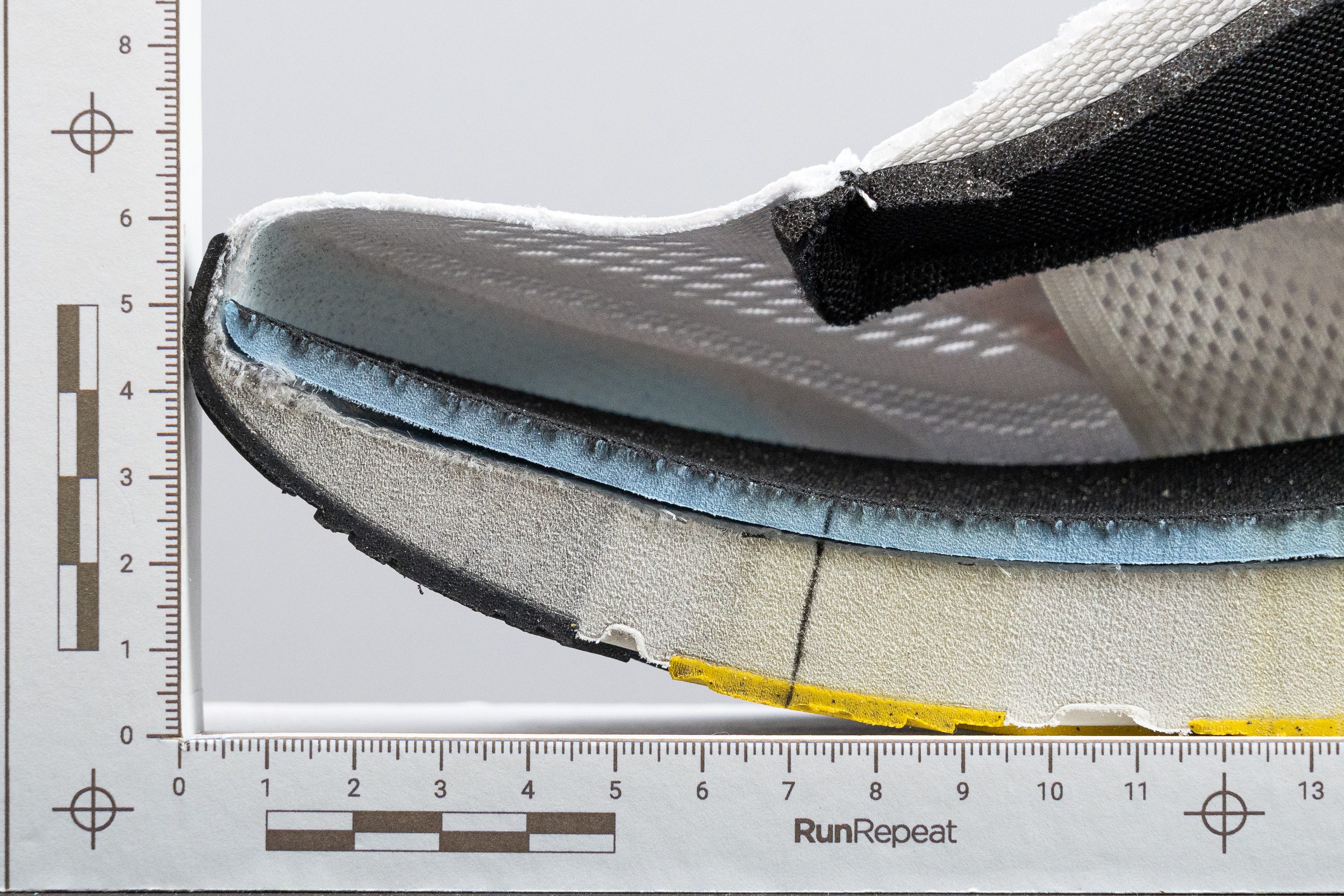
Size and fit
Size
New Balance Fresh Foam X 880 v14 fits slightly small (194 votes).
Internal length
| Fresh Foam X 880 v14 | 270.1 mm |
| Average | 269.4 mm |
Width / Fit
We believe that New Balance really prioritized comfort with the 880 v14, which is evident in our precise measurements on the shoe's fit.
With a generous 96.8 mm width, it provides plenty of space for most runners, especially during longer runs. And NB sells 2E and 4E widths in select markets too!
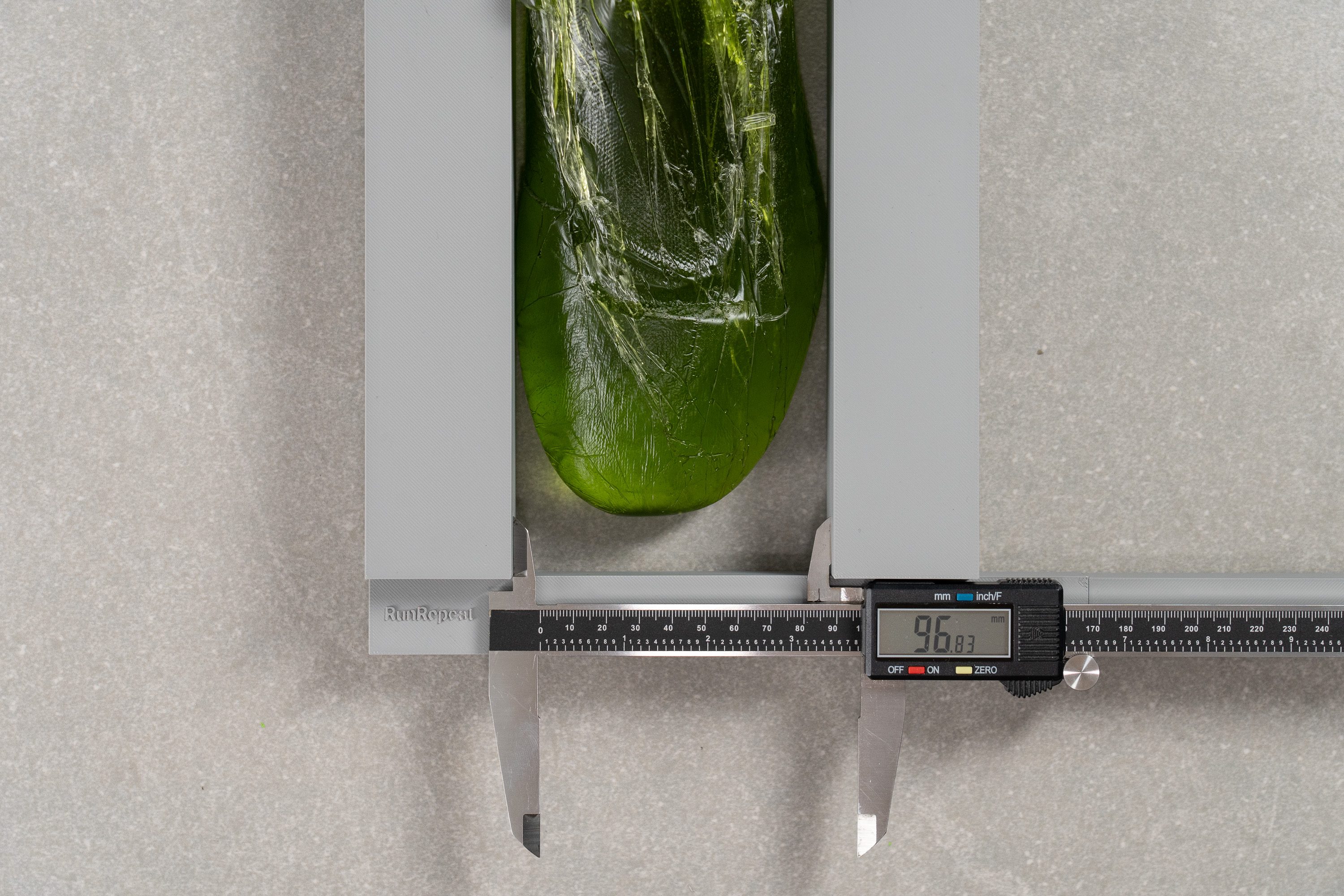
| Fresh Foam X 880 v14 | 96.8 mm |
| Average | 95.2 mm |
Toebox width
We felt impressive room width-wise from the moment we stepped into the 880, and it became clear after measuring the big toe area. At 76.2 mm, it’s much wider than most shoes on the market!
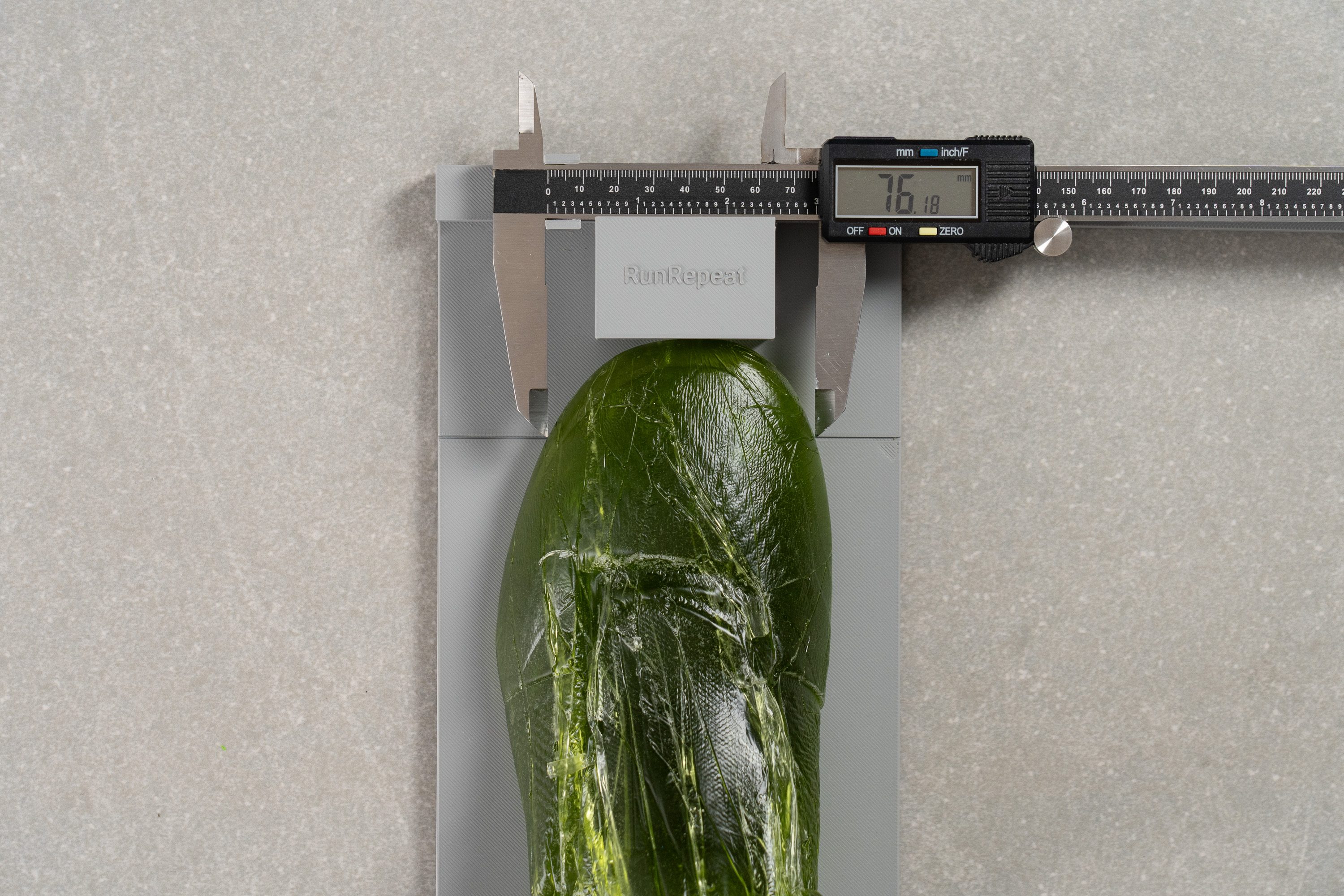
| Fresh Foam X 880 v14 | 76.2 mm |
| Average | 73.3 mm |
Toebox height
What's more, New Balance demonstrated impressive generosity with the toebox height, providing a substantial 28.5 mm. This design ensures ample space for unrestricted toe movement in all directions.
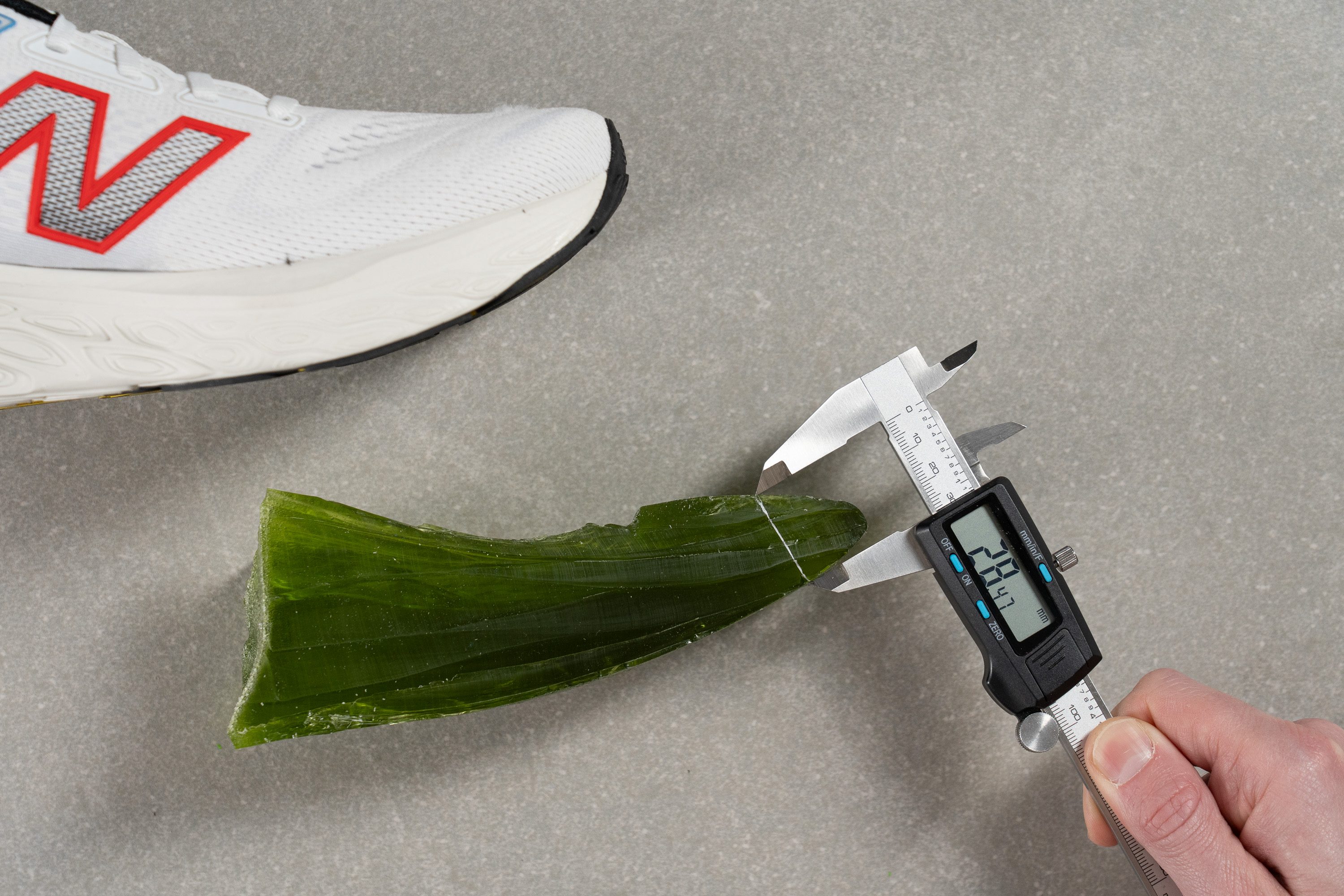
| Fresh Foam X 880 v14 | 28.5 mm |
| Average | 27.1 mm |
Traction / Grip
Traction test
The 880 v14 proved to have an adequate bite on both dry and wet pavement, earning our approval for rainy days.
Its forefoot grip also showed a good coefficient of friction (0.51) in our SATRA TM144 test method, further confirming this NB shoe's solid traction.
| Fresh Foam X 880 v14 | 0.51 |
| Average | 0.49 |
Outsole design
We found that the outsole of the 880 v14 uses New Balance’s NDurance compound—a rubber seen across many of their training models. The layout sticks to the same pod-style design seen throughout the Fresh Foam X family, blending flexibility with that now-signature look.
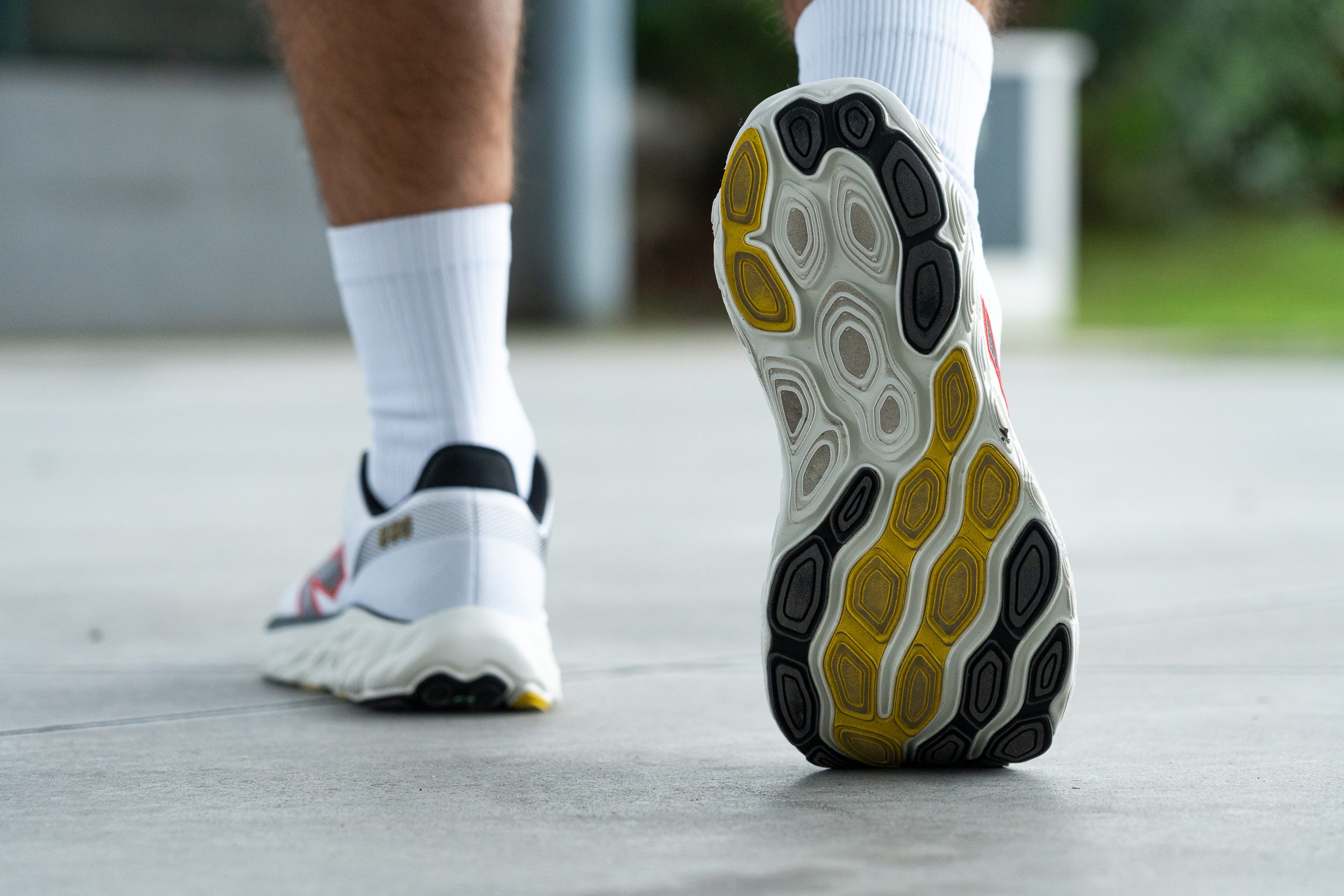
Flexibility / Stiffness
We performed our signature bend test to measure the force required, and at just 12.9N, the result was exactly what we hoped for.
This flexibility is ideal for a running shoe that doubles as a walking shoe or even for daily chores. Being too stiff would have made it uncomfortable, but we believe this balance of flexibility ensures comfort in a variety of situations, and that of course includes easy running or jogging.
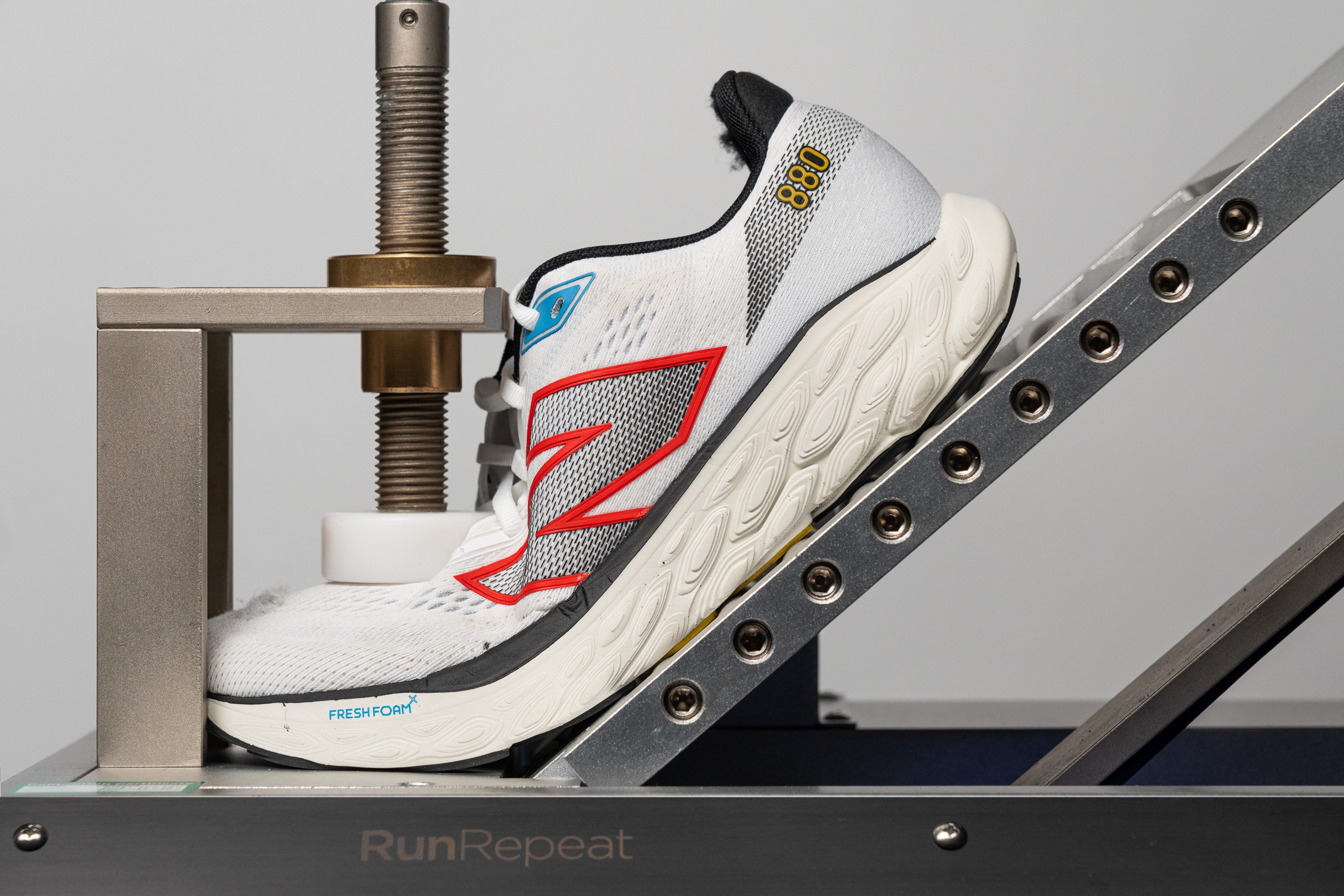
| Fresh Foam X 880 v14 | 12.9N |
| Average | 15.3N |
Weight
In terms of weight, we can't criticize the New Balance Fresh Foam X 880 v14—yep, the name feels endless—because at 8.9 oz or 251g, it’s on par with similarly cushioned shoes or even a bit lighter.
We never found these shoes cumbersome during our runs—in fact, they felt surprisingly agile, making them a solid choice for those everyday miles.
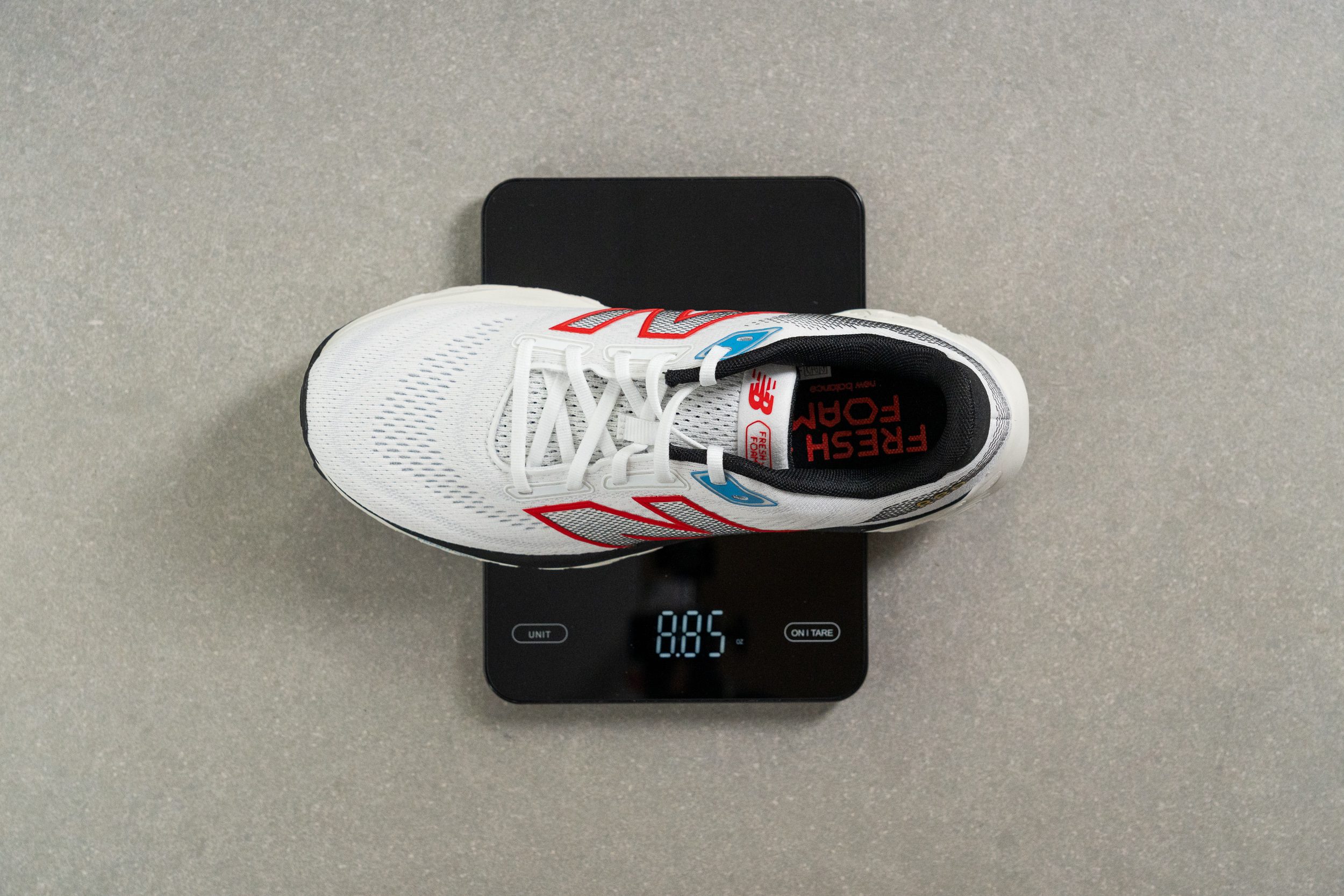
| Fresh Foam X 880 v14 | 8.9 oz (251g) |
| Average | 9.3 oz (264g) |
Breathability
New Balance has recently become known for its frequent use of knit uppers, moving away from engineered mesh in their training shoes—and that’s the case with the 880 v14, their answer to the Nike Pegasus 41.
However, knit uppers aren't perfect. One drawback is ventilation, which tends to be below average due to the material’s thickness. That’s what we found in the 880 v14—it sacrifices some airflow for added comfort, earning a 3/5 in our test. This setup works well for most seasons, except summer.
We found that New Balance emphasized breathability in the toebox and tongue, while the sides of the upper are more structured. This likely improves stability, as shoes with Fresh Foam X can feel a bit wobbly due to its softness.
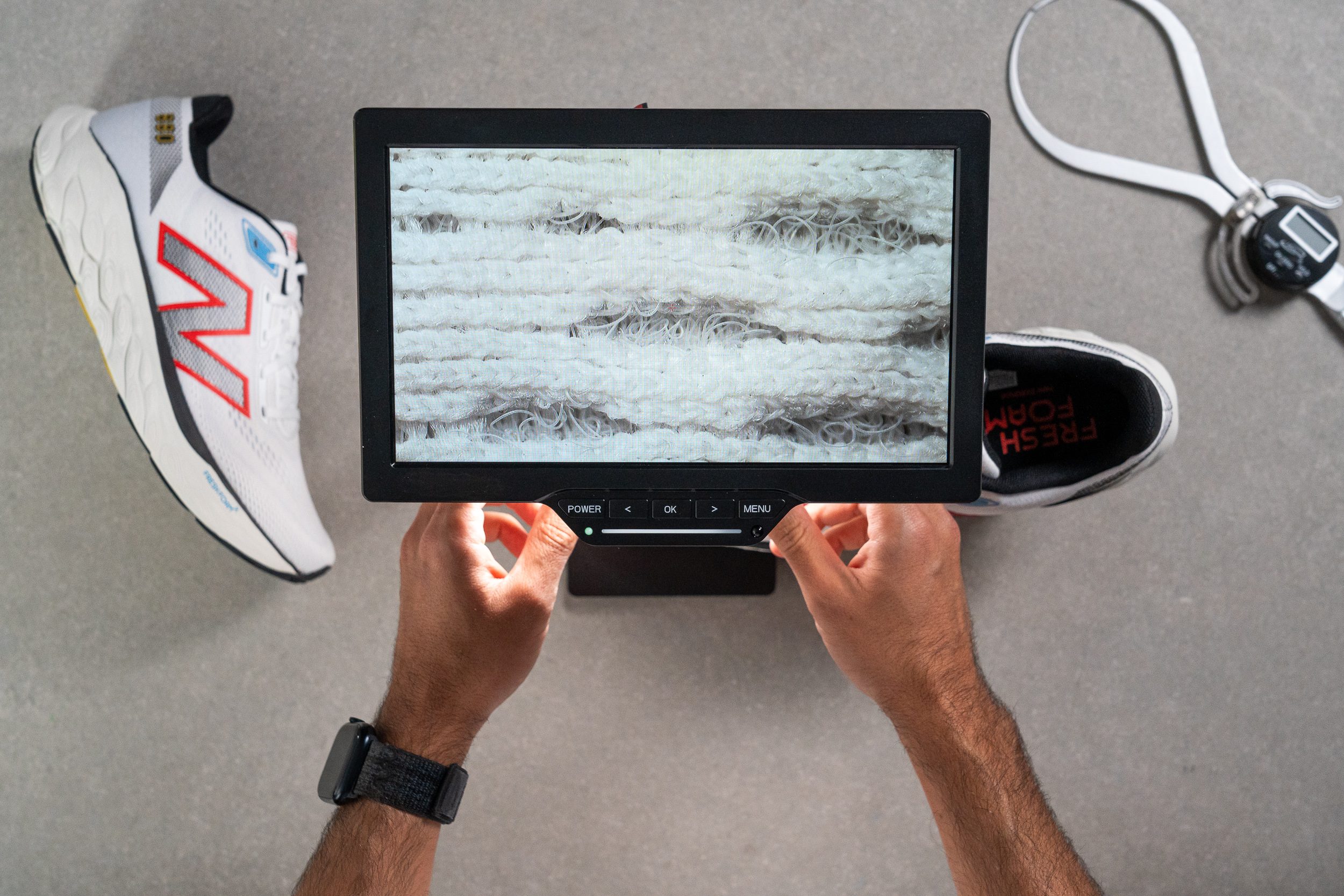
Looking at the knit upper under a microscope, we observed a multi-layer design that prioritizes comfort and should offer decent durability, though we'll confirm that in a later test.
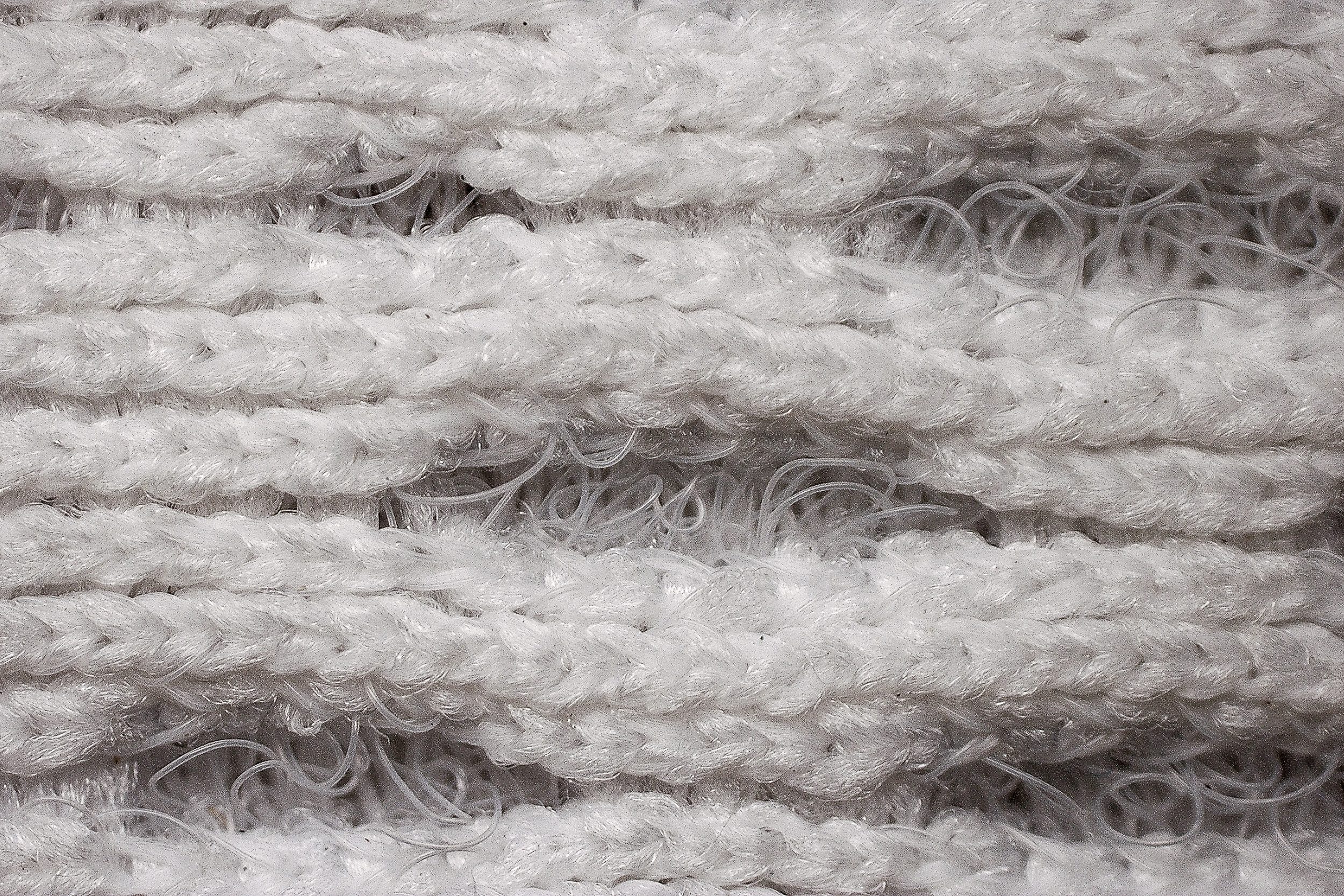
Finally, by simply feeling the upper with our hands—a method we really trust after doing hundreds of shoes here in the lab—we confirmed that it’s stretchy, well-padded, and very comfortable.
If you're okay with trading some airflow for comfort, we think it’s a great option.
| Fresh Foam X 880 v14 | 3 |
| Average | 3.7 |
Stability
Lateral stability test
As part of the "80" lineup, this New Balance is primarily a neutral shoe, but we found that the Boston brand included subtle stability elements to balance out the softness of the midsole. The most notable feature is the supportive midsole sidewalls.
Torsional rigidity
In terms of torsional rigidity, we found that the 880 v14 fits again into the "average" category, scoring a 3/5—exactly what we'd expect from a daily trainer. In our experience, this is the right approach for a shoe aiming to balance stability and comfort.
| Fresh Foam X 880 v14 | 3 |
| Average | 3.5 |
Heel counter stiffness
We found that the heel counter strikes a great balance between stiffness and comfort, and in our view, no adjustments are needed here.
The support provided works well for most runners. However, extreme heel strikers may prefer a bit more reinforcement. For them, we believe opting for a stability shoe would be a smarter choice.
| Fresh Foam X 880 v14 | 3 |
| Average | 2.9 |
Midsole width - forefoot
We completed our manual assessments and grabbed the calipers to measure the midsole width at both the front and rear of the shoe. Starting with the forefoot, we recorded 116.5 mm—a common measurement for a daily running shoe.
This width offers ample space for midfoot and forefoot strikers. In our experience, it performed well even during some strides, providing a stable platform.
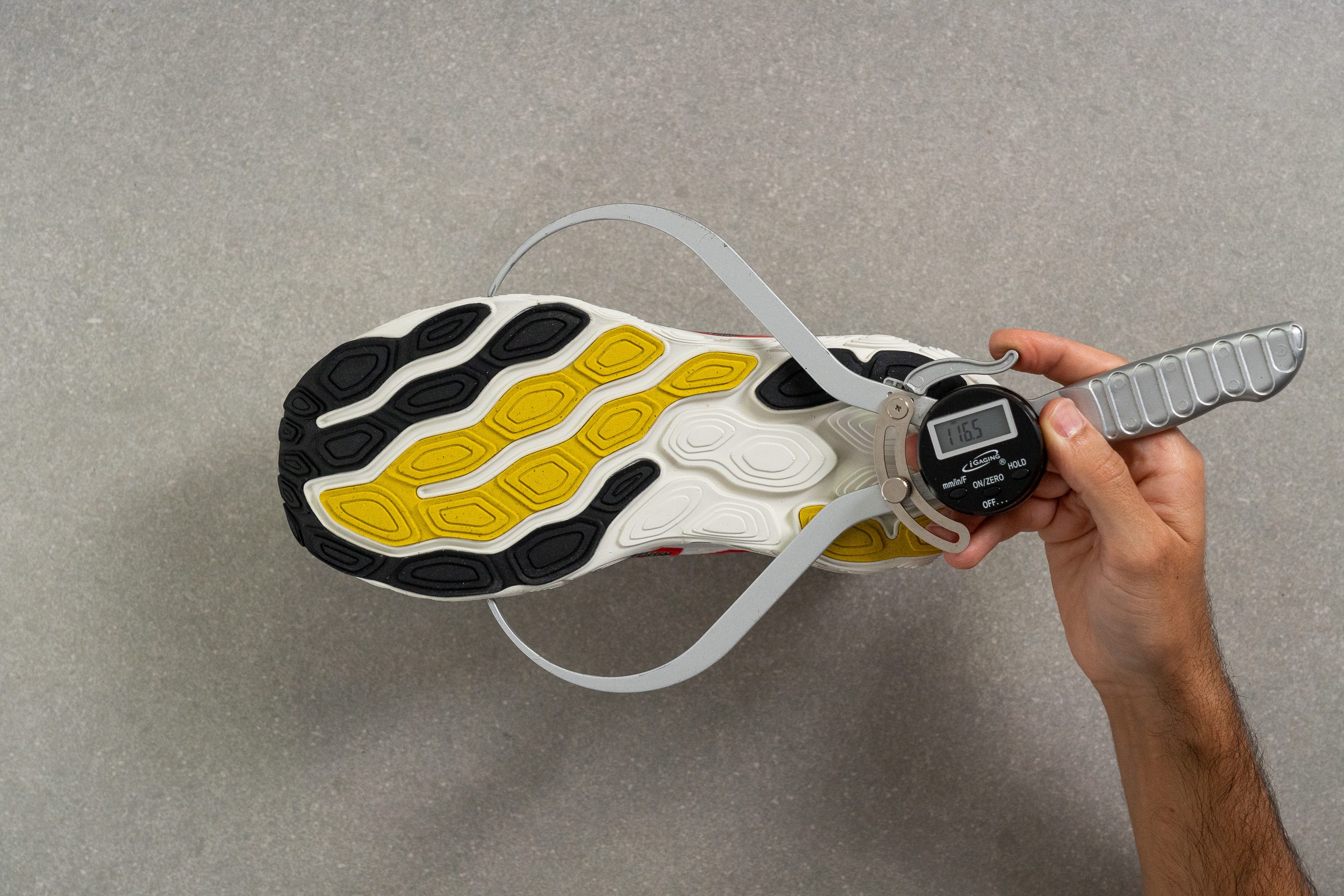
| Fresh Foam X 880 v14 | 116.5 mm |
| Average | 114.4 mm |
Midsole width - heel
The heel measures slightly wider than expected at 92.6 mm, which benefits heel strikers looking for extra support. This is further enhanced by the midsole sidewalls we mentioned earlier, helping to center the foot and reduce lateral movement.
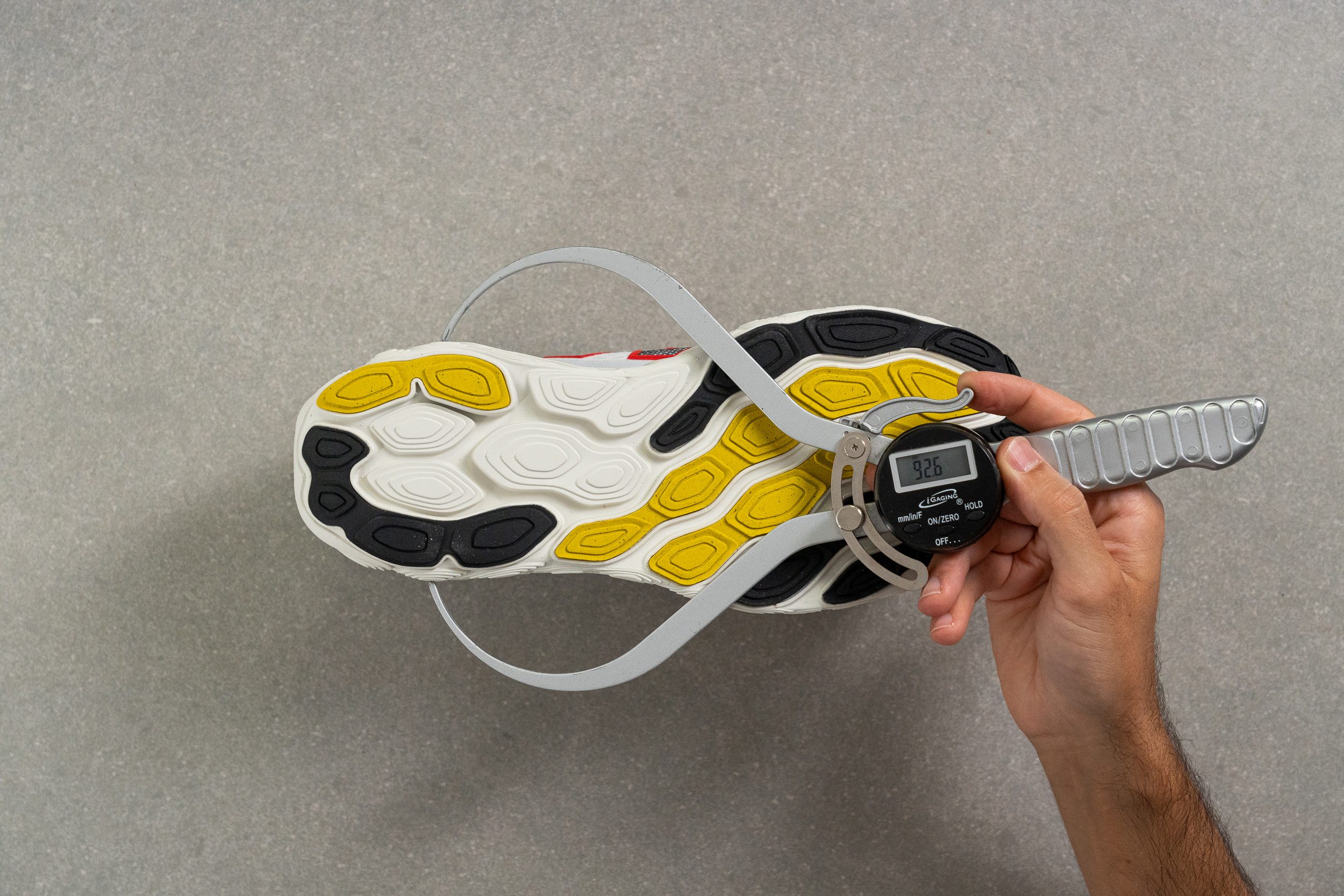
| Fresh Foam X 880 v14 | 92.6 mm |
| Average | 90.6 mm |
Durability
Toebox durability
Knit uppers often fall short in durability due to their softness and less rugged texture compared to synthetic engineered mesh, but this one surprised us in our durability test.
It earned a solid 3/5, which is already a good score for any shoe, but an impressive one for a knit upper.
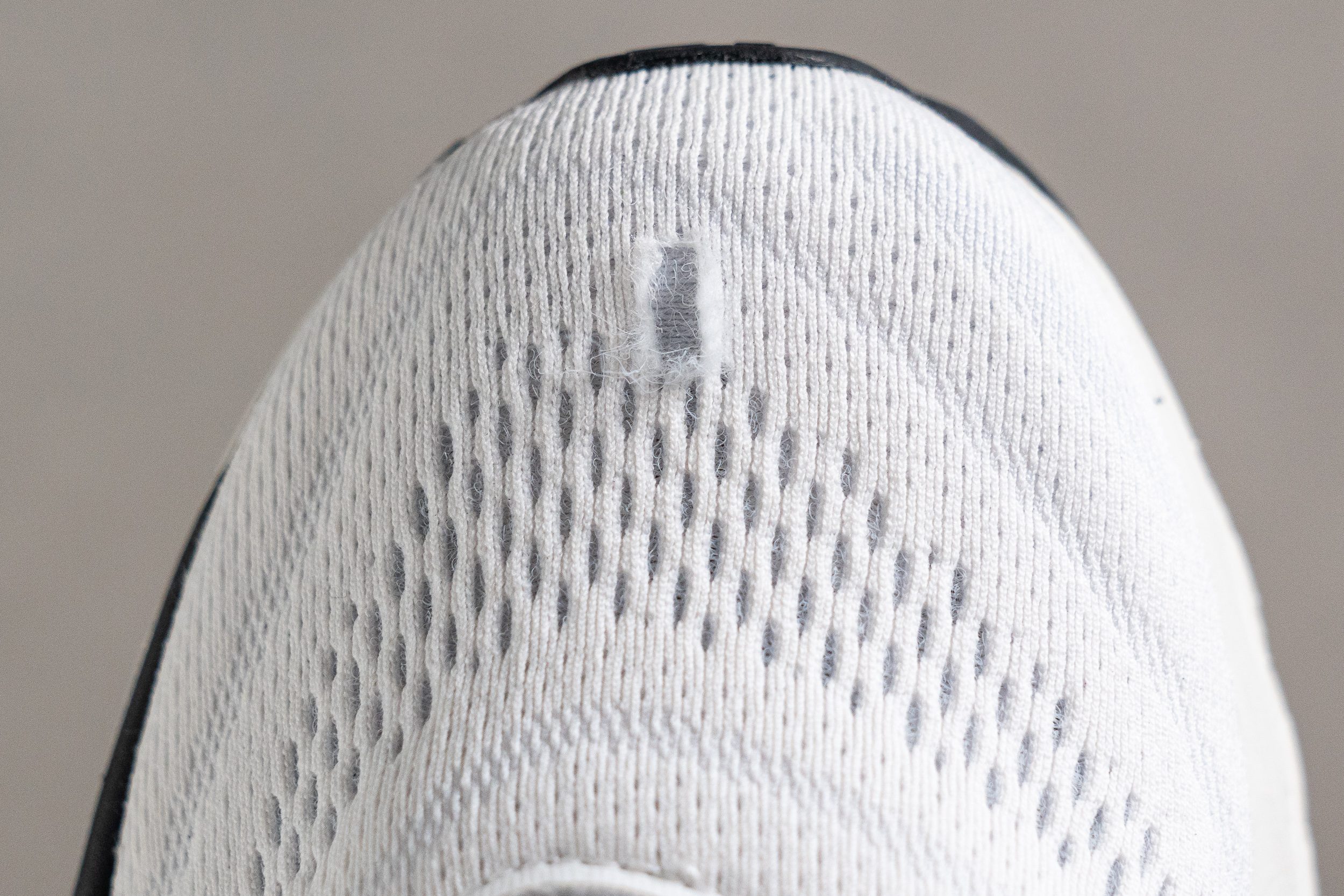
| Fresh Foam X 880 v14 | 3 |
| Average | 2.6 |
Heel padding durability
The heel was a major disappointment—and we believe it’s a real issue for runners who frequently experience wear in this area of their shoes.
As shown in the video and photo, the results speak for themselves. We found it to be a clear 1/5, a subpar performance.
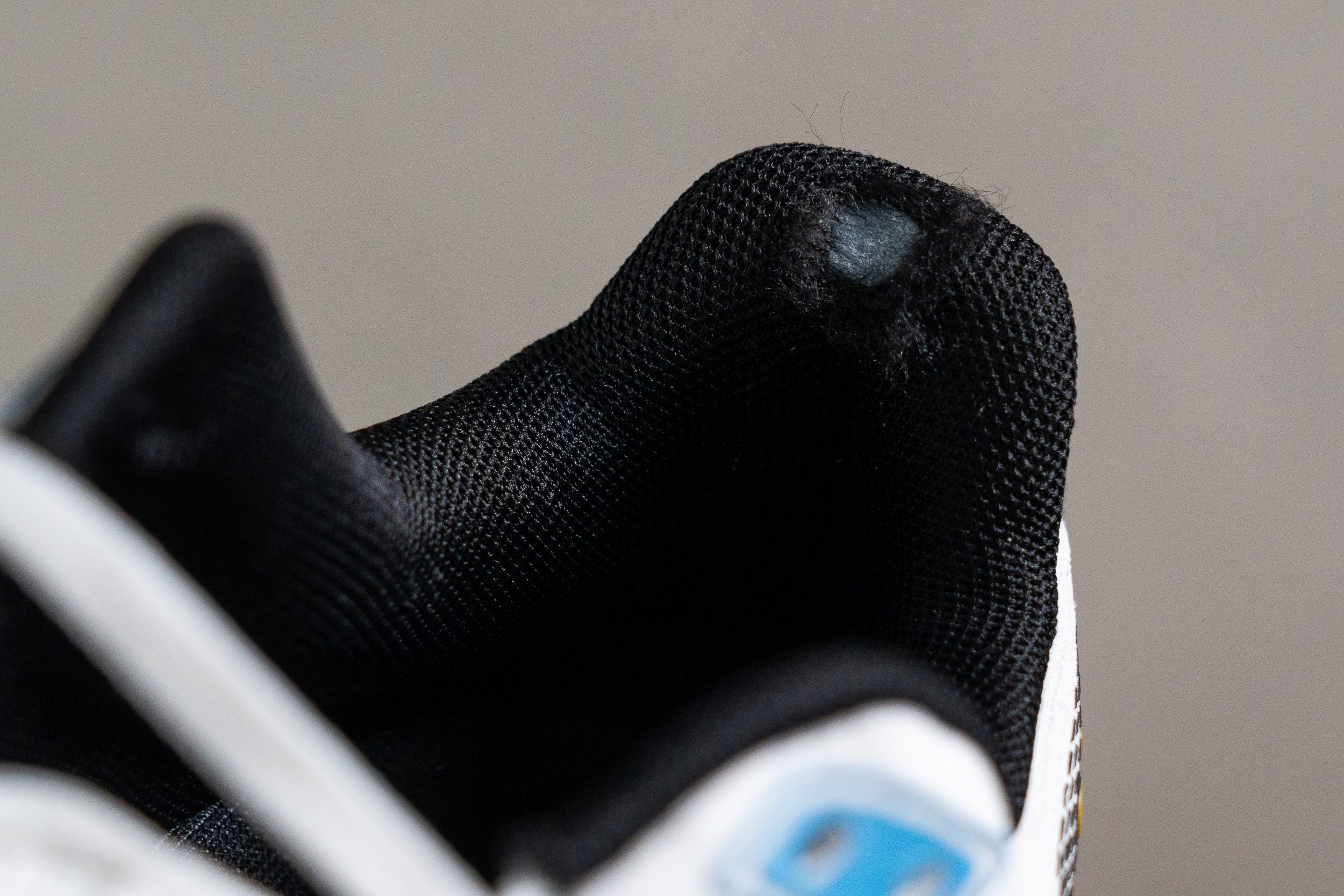
| Fresh Foam X 880 v14 | 1 |
| Average | 3.4 |
Outsole durability
To see if the harder foam leads to better durability, we fired up the Dremel for the third and final time today.
What we found was a result we consider average at 1.2 mm, which, while not concerning, felt slightly disappointing for us.
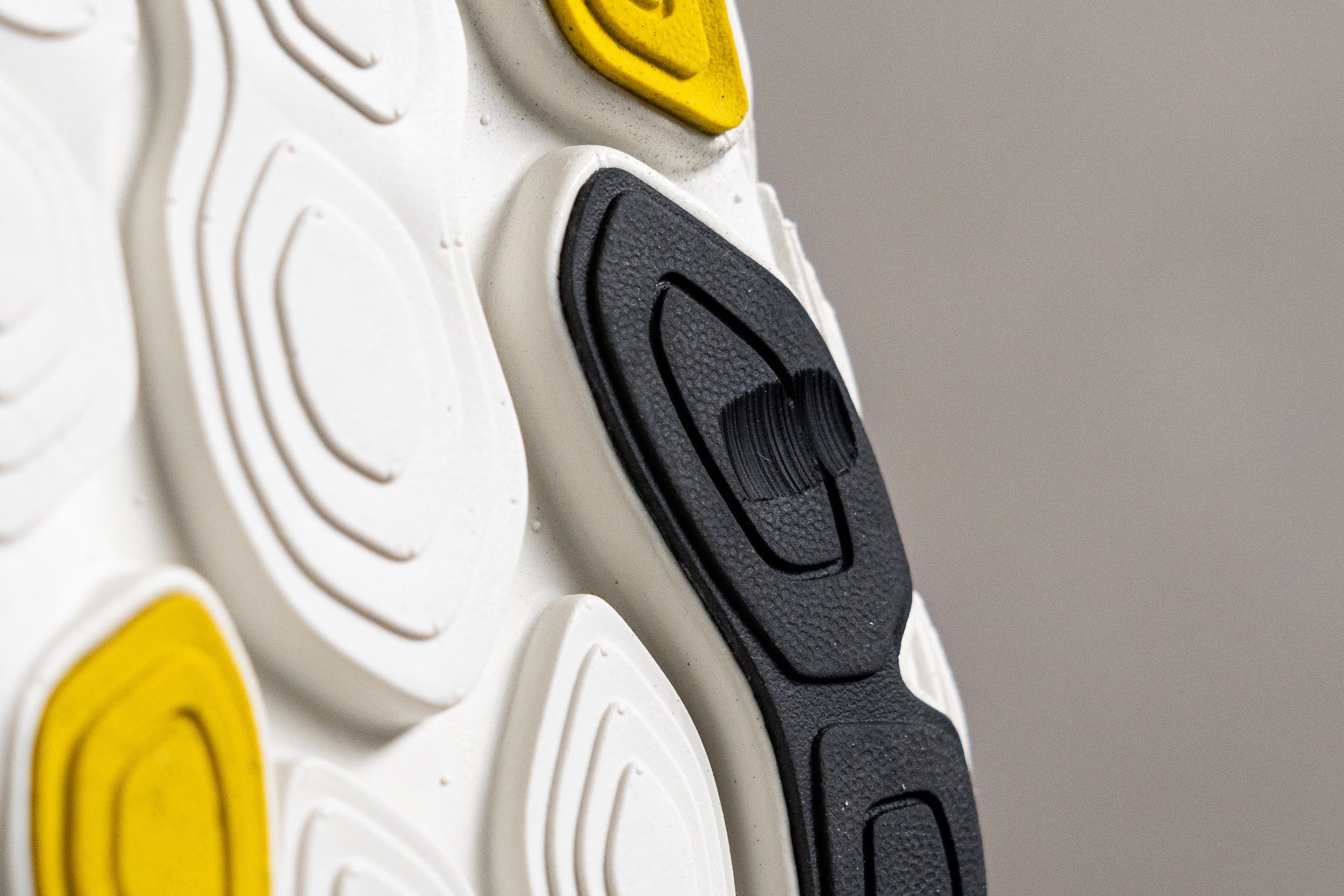
| Fresh Foam X 880 v14 | 1.2 mm |
| Average | 1.1 mm |
Outsole thickness
New Balance compensated well with generous outsole coverage and 3.4 mm of thickness, which we believe will extend the shoe's lifespan.
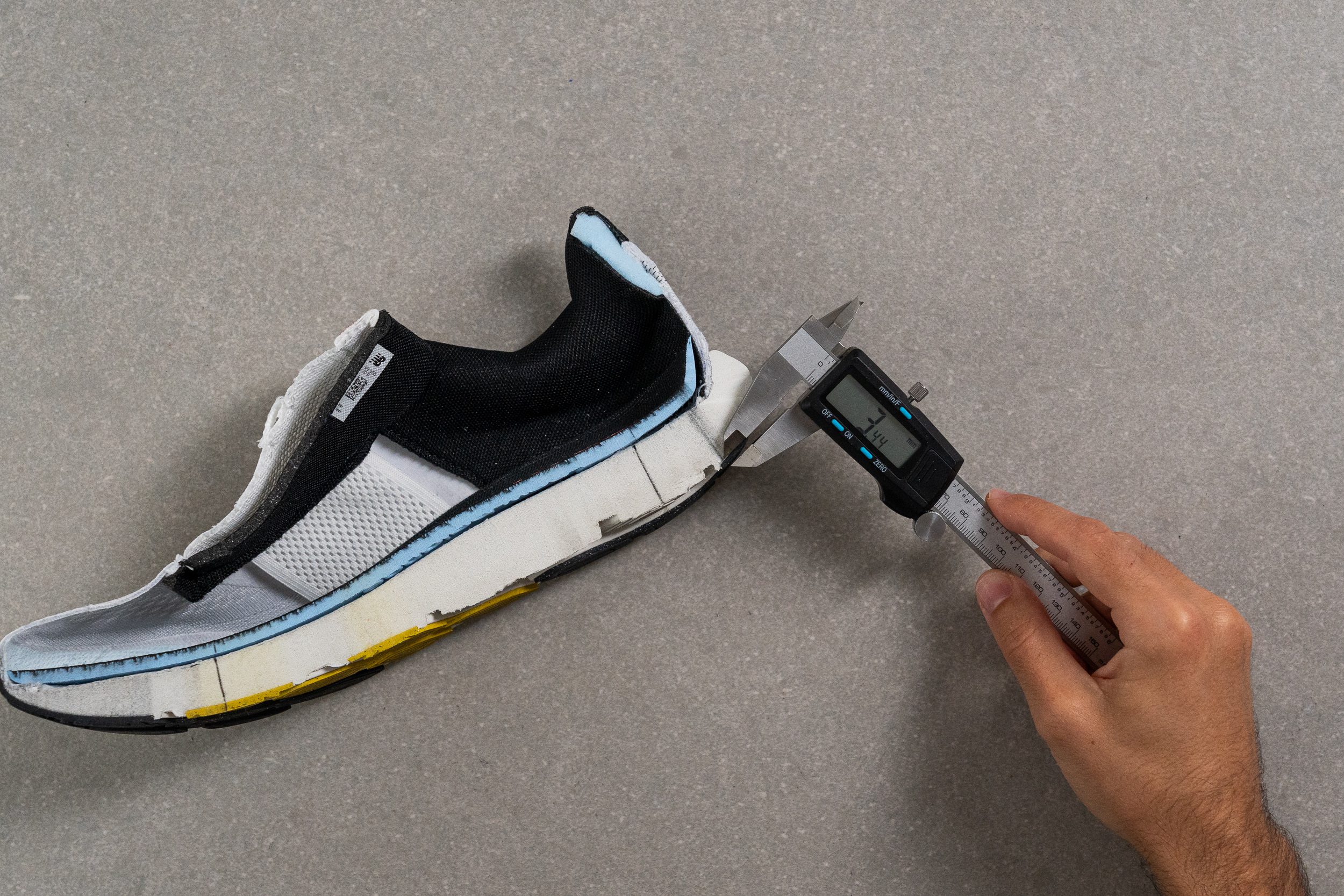
| Fresh Foam X 880 v14 | 3.4 mm |
| Average | 3.2 mm |
Misc
Insole thickness
The insole doesn’t offer anything unique and measures 4.7 mm in thickness, similar to most other running shoes.
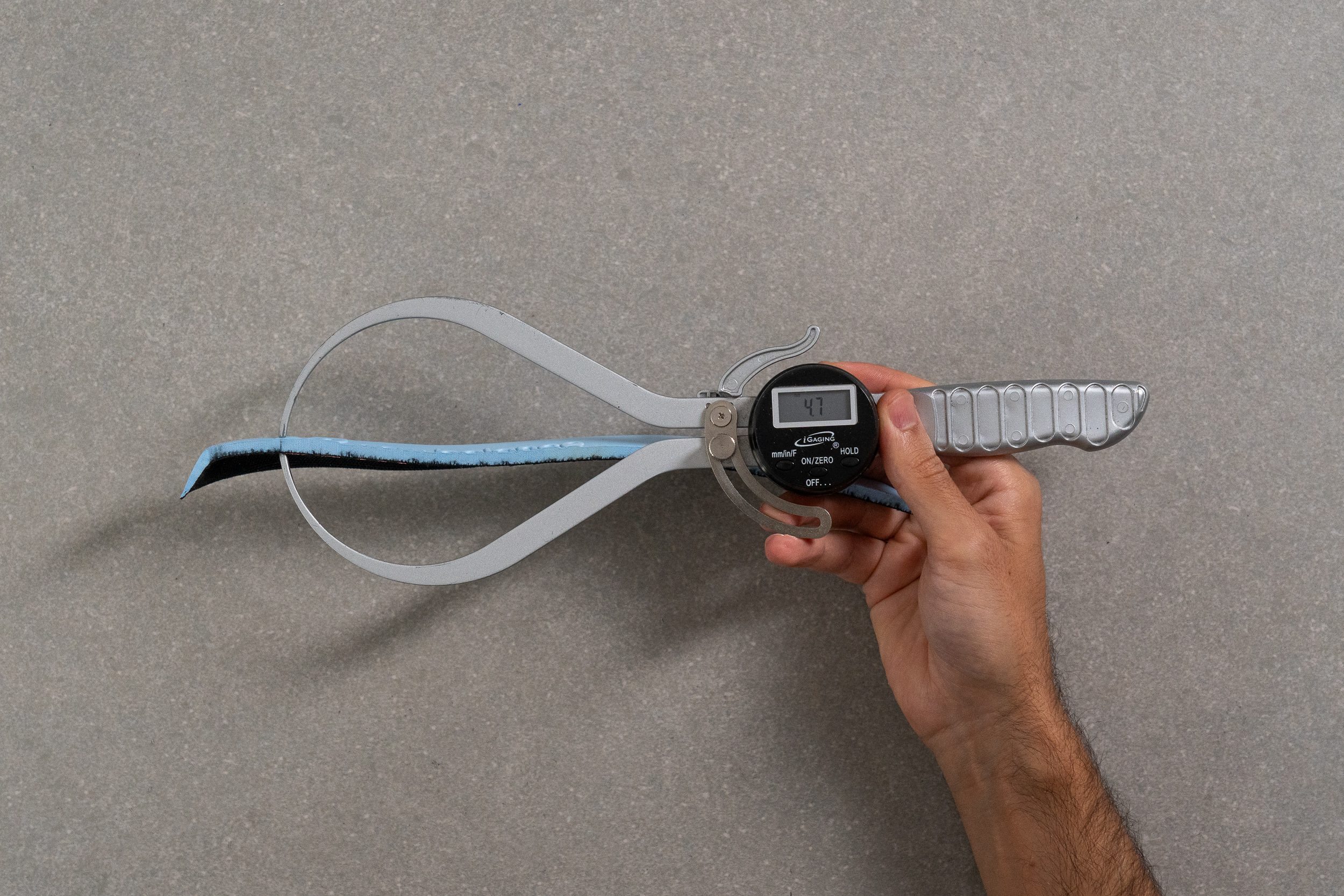
| Fresh Foam X 880 v14 | 4.7 mm |
| Average | 4.5 mm |
Removable insole
We easily removed the insole and swapped it out with several third-party footbeds we had on hand—no hassle at all due to the roomy fit of the 880 v14.
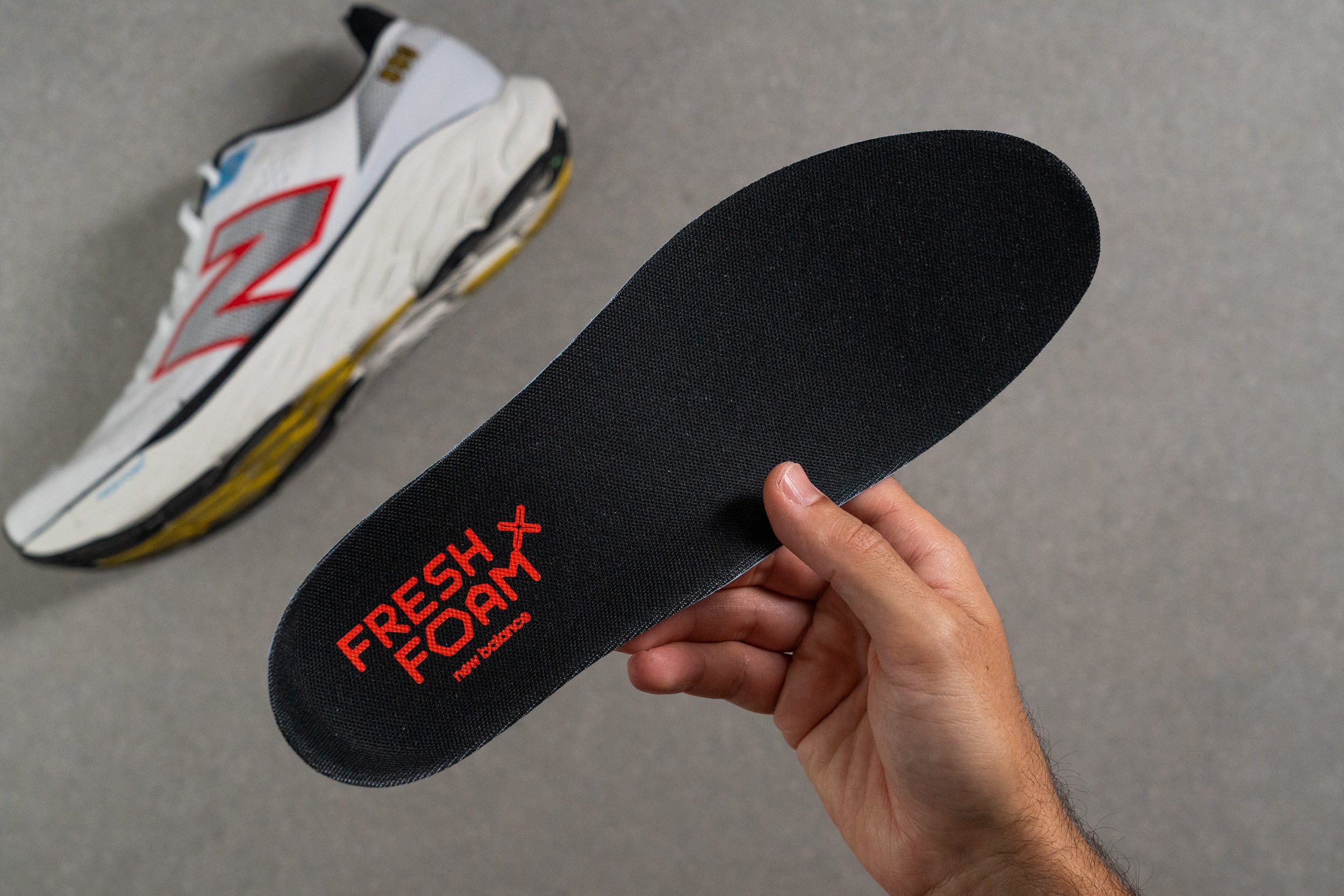
What really impressed us, though, was the thoughtful detail on the back of the insole. New Balance engraved their logo there, adding a subtle premium touch that many might overlook. It's like that idea from Steve Jobs—what’s hidden should still be crafted with care, even if most won’t ever notice it.
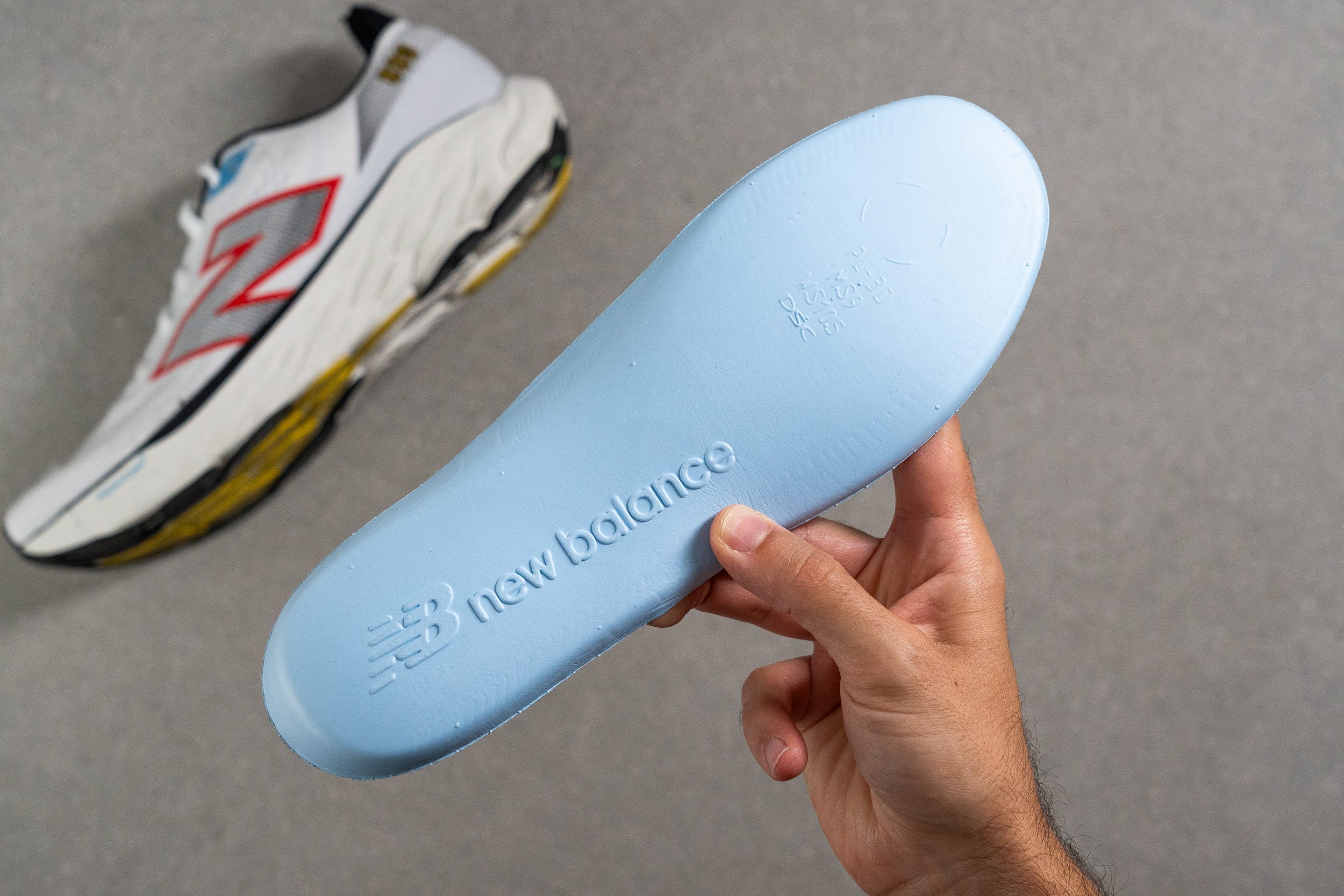
| Fresh Foam X 880 v14 | Yes |
Midsole softness in cold (%)
Since Fresh Foam X is based on EVA—a material known for underperforming in cold temperatures—we weren’t surprised when the midsole became 41% firmer after spending 20 minutes in the freezer. In our view, this was a letdown, but it wasn't unexpected.
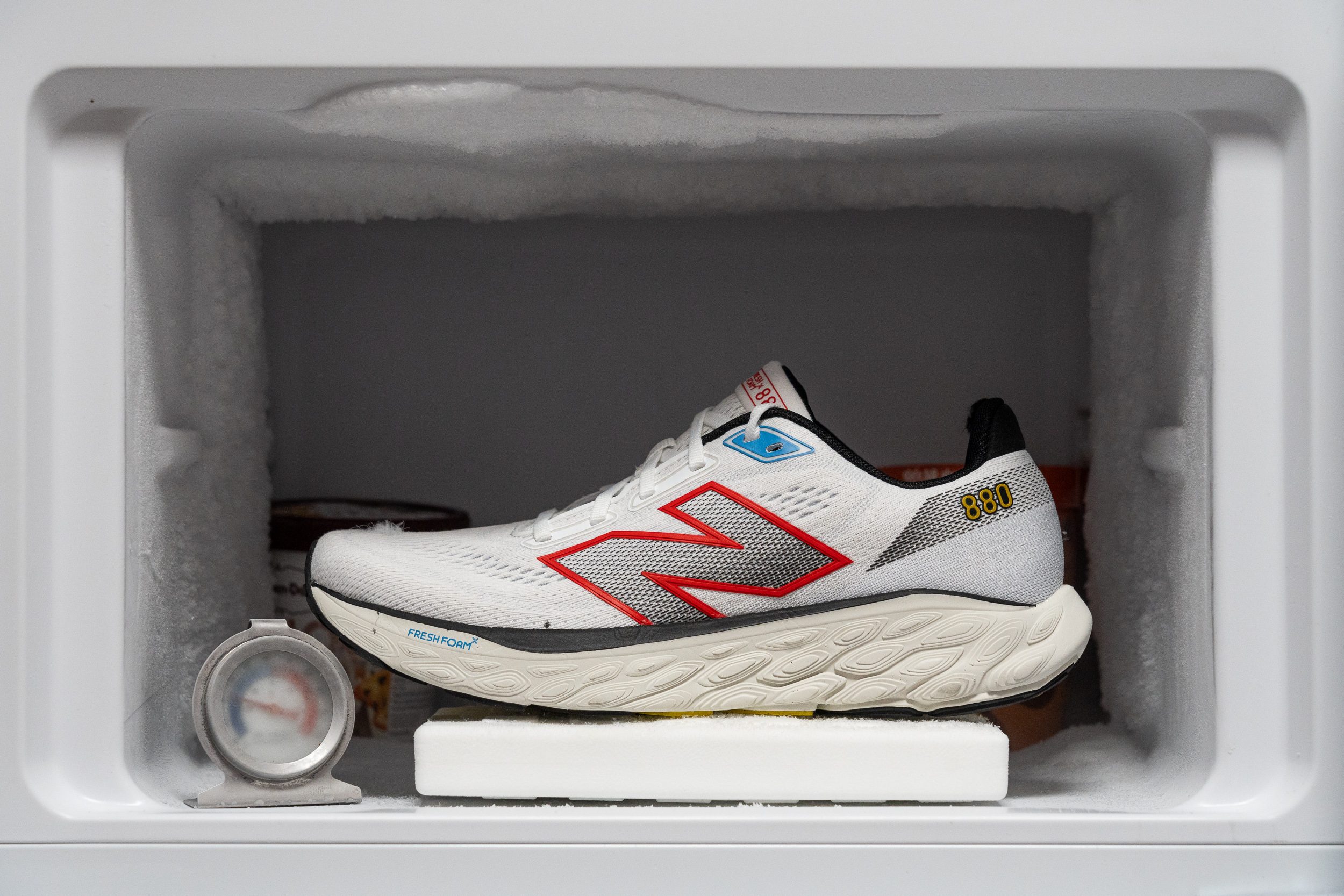
| Fresh Foam X 880 v14 | 41% |
| Average | 24% |
Reflective elements
With most daily trainers on the market featuring reflective elements, we have to admit it was a bit disappointing to find none in the 880 v14.
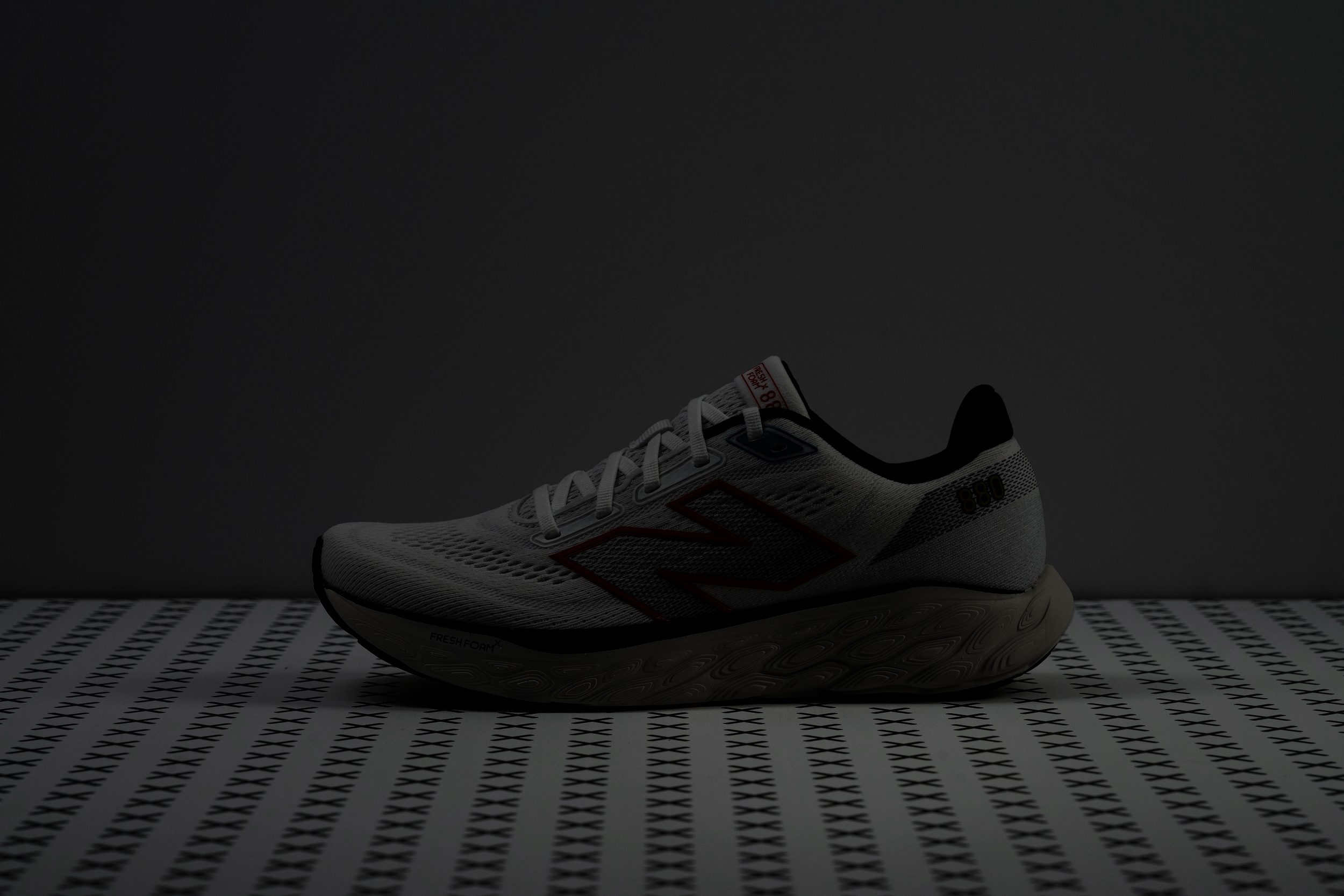
| Fresh Foam X 880 v14 | No |
Tongue padding
We found the tongue on this daily workhorse to be well-padded at 7.9 mm, making longer distances noticeably more comfortable compared to other trainers with thinner tongues. The plush feel really stood out during long runs!
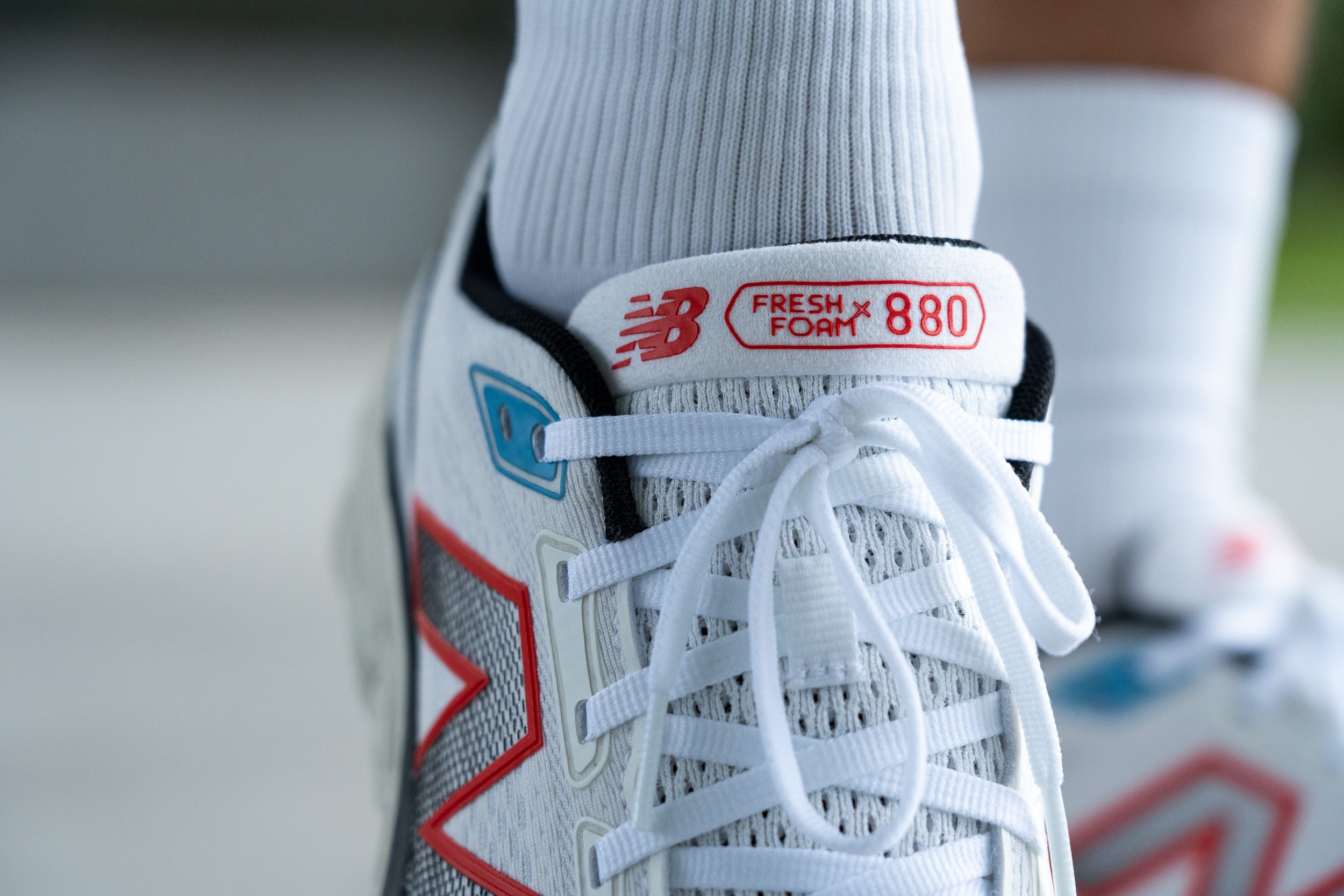
In our experience, the lacing system is fantastic. It features flat laces threaded through punched eyelets—a combination we love. To top it off, there’s an extra eyelet for those who prefer a snugger fit around the ankle.
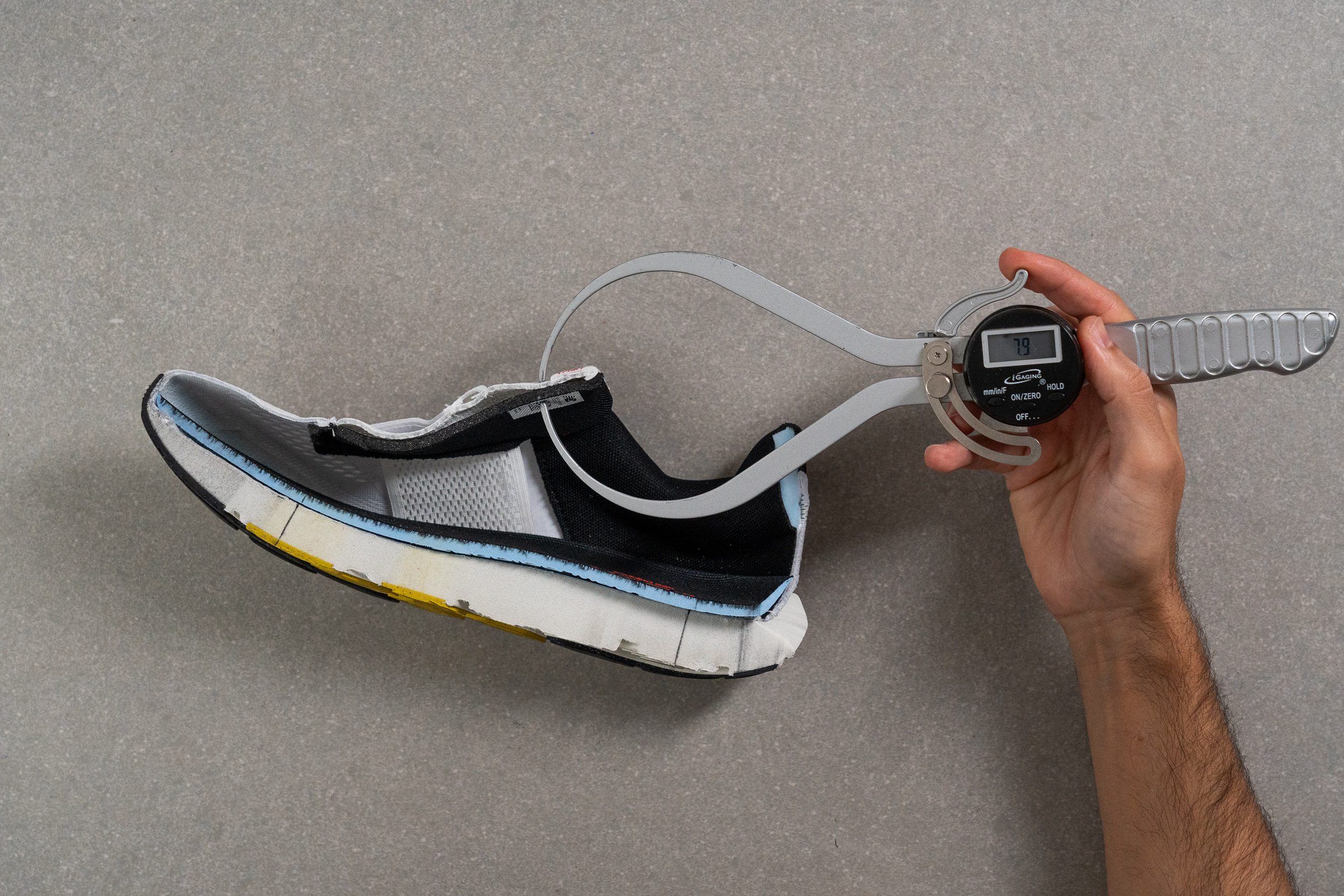
| Fresh Foam X 880 v14 | 7.9 mm |
| Average | 5.7 mm |
Tongue: gusset type
Discovering a semi-gusseted tongue in a $140 daily trainer is impressive, as many brands reserve this premium feature for their higher-end models. It not only enhances the lockdown but also boosts the overall value of the 880 v14.
We also loved that NB used perforated fabric in the gusset, enhancing airflow—especially important for a shoe that could use a bit more breathability as we demonstrated before.

| Fresh Foam X 880 v14 | Both sides (semi) |
Heel tab
The 880 v14 doesn’t feature a traditional heel tab, but there’s a small extension at the heel that provides solid support for the Achilles tendon. In our experience, it also makes slipping your feet into the upper a bit easier.
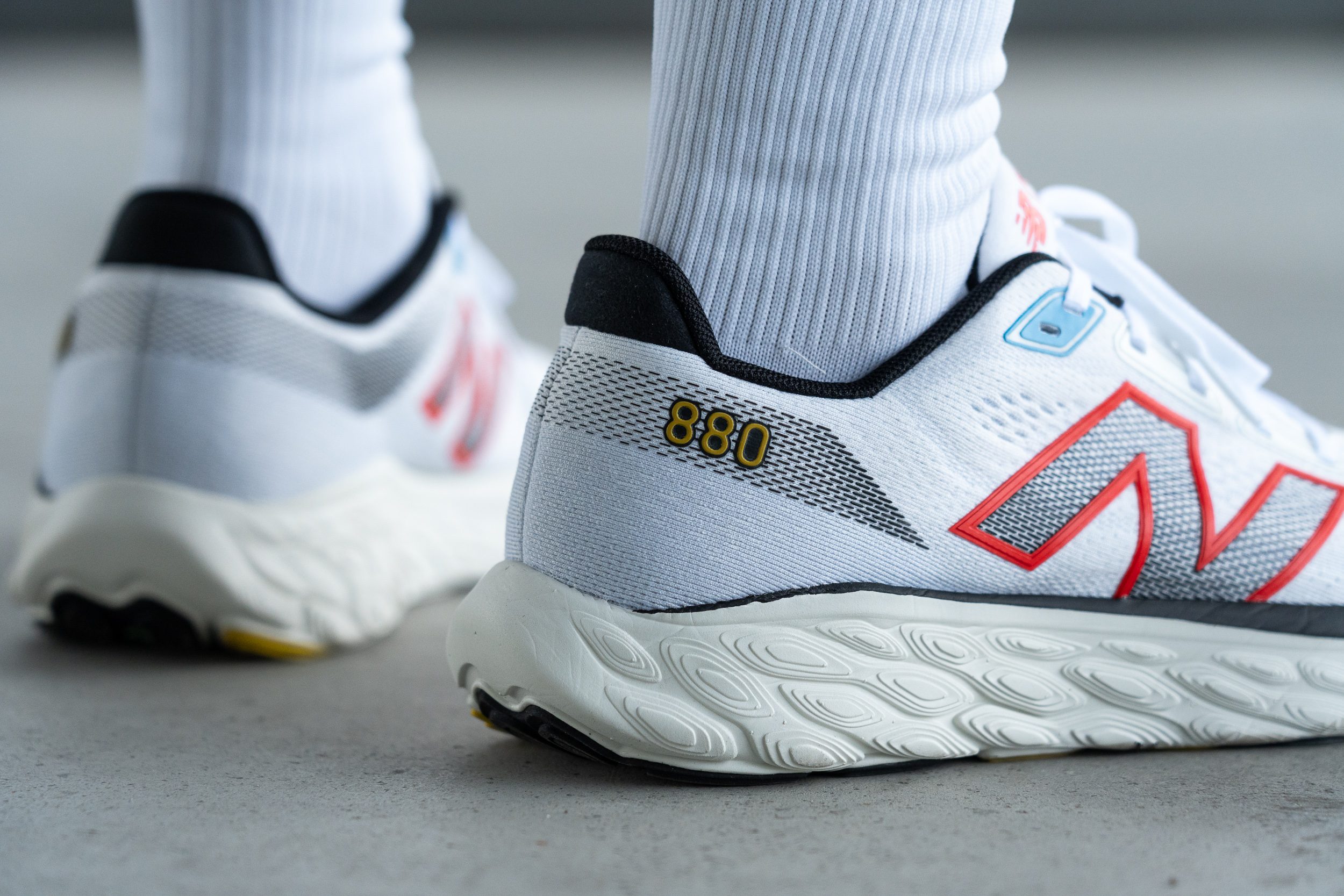
| Fresh Foam X 880 v14 | None |
Price
The 880 v14 is fairly priced and aligns with most daily trainers on the market, including the Nike Pegasus 41, offering strong value. No complaints here, and we hope future versions can maintain this price without an increase!
| Fresh Foam X 880 v14 | $140 |
| Average | $153 |

